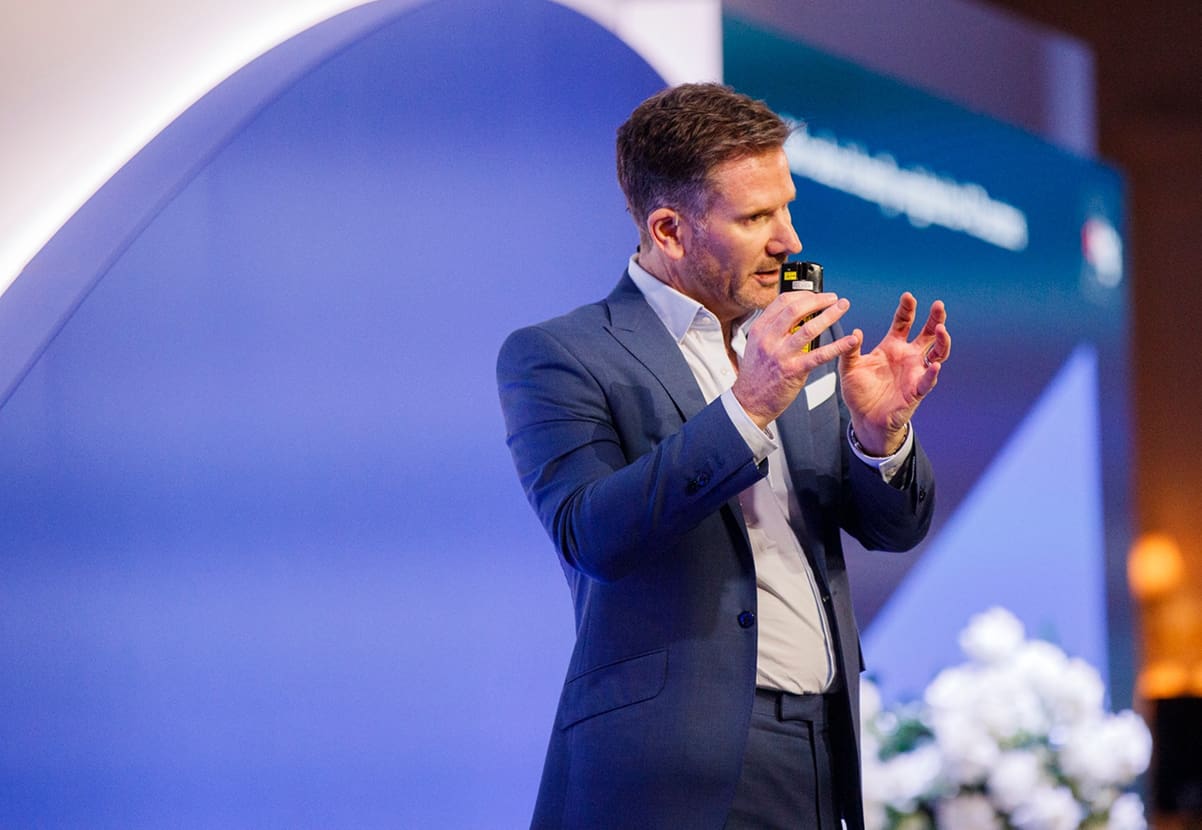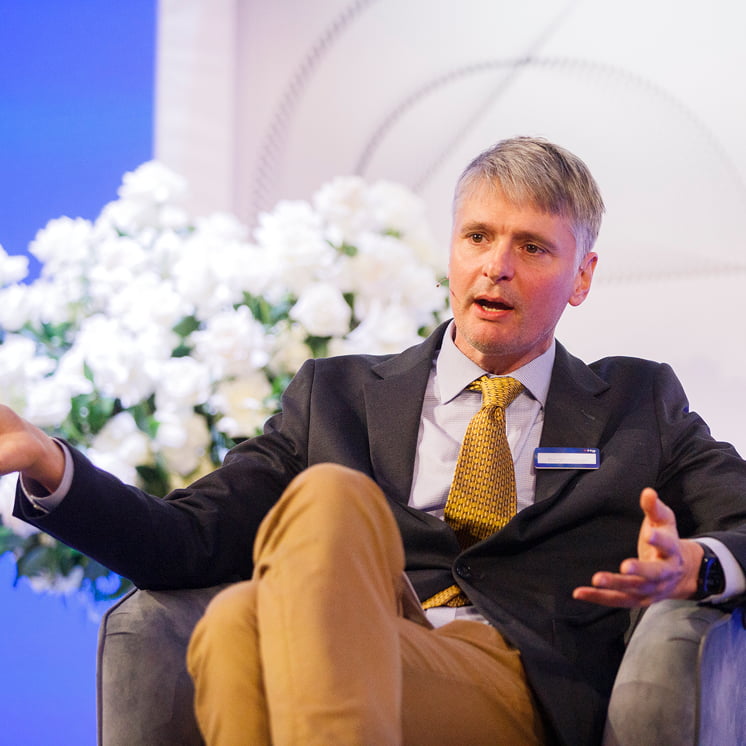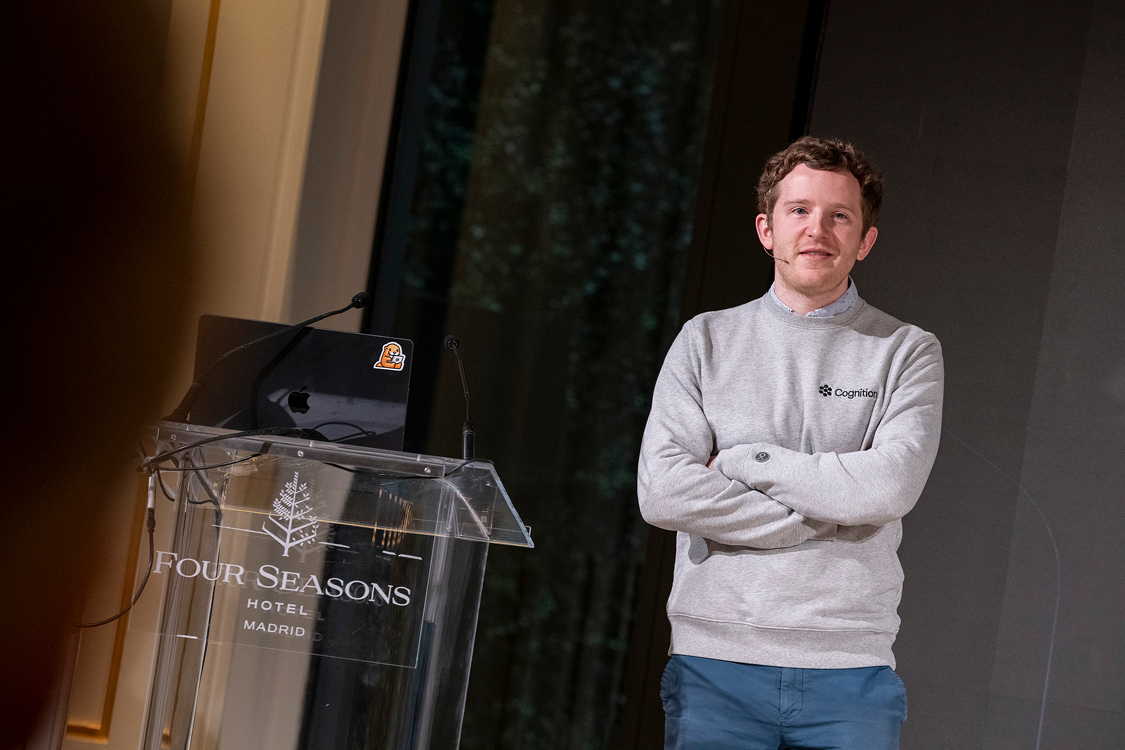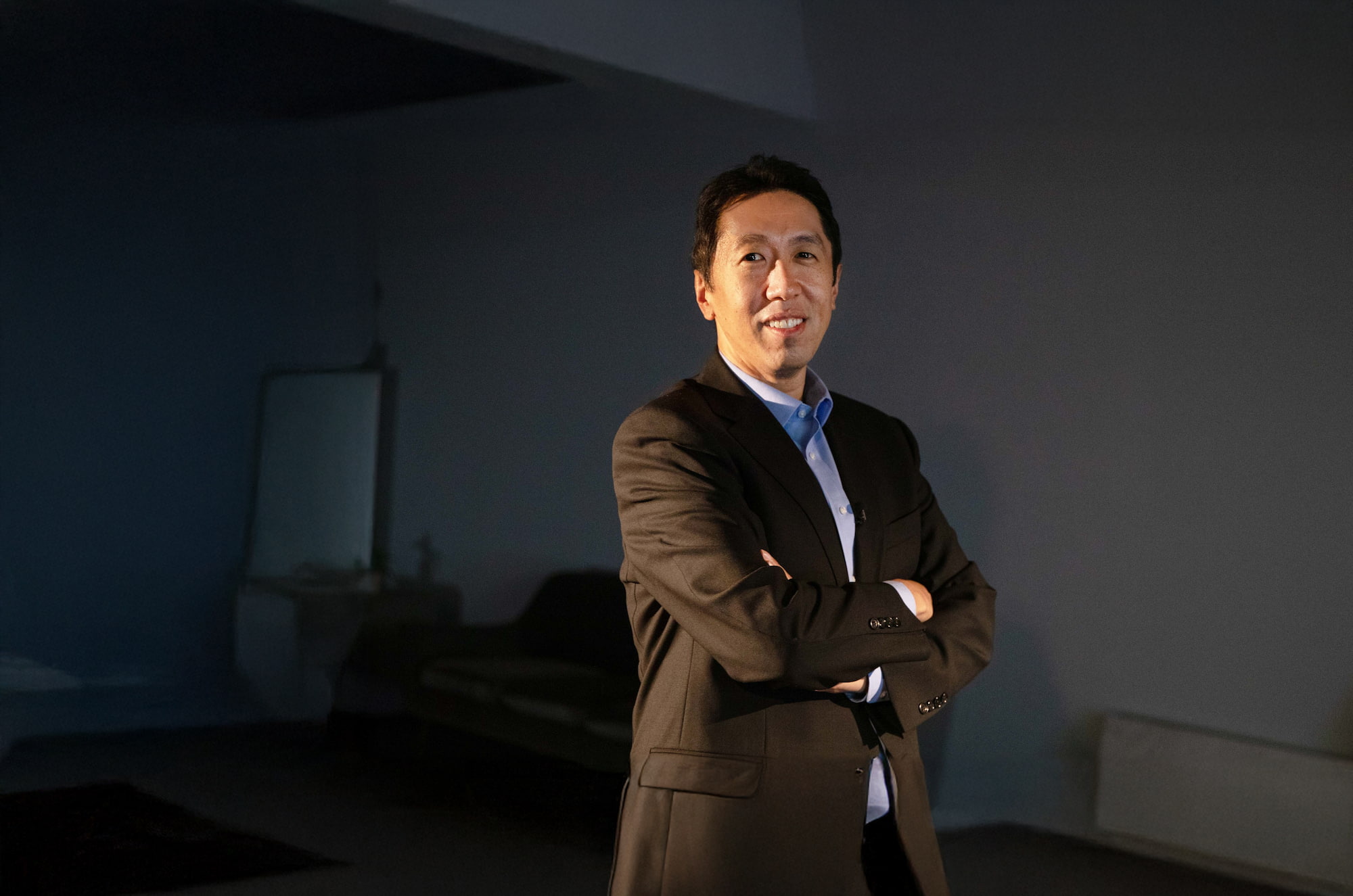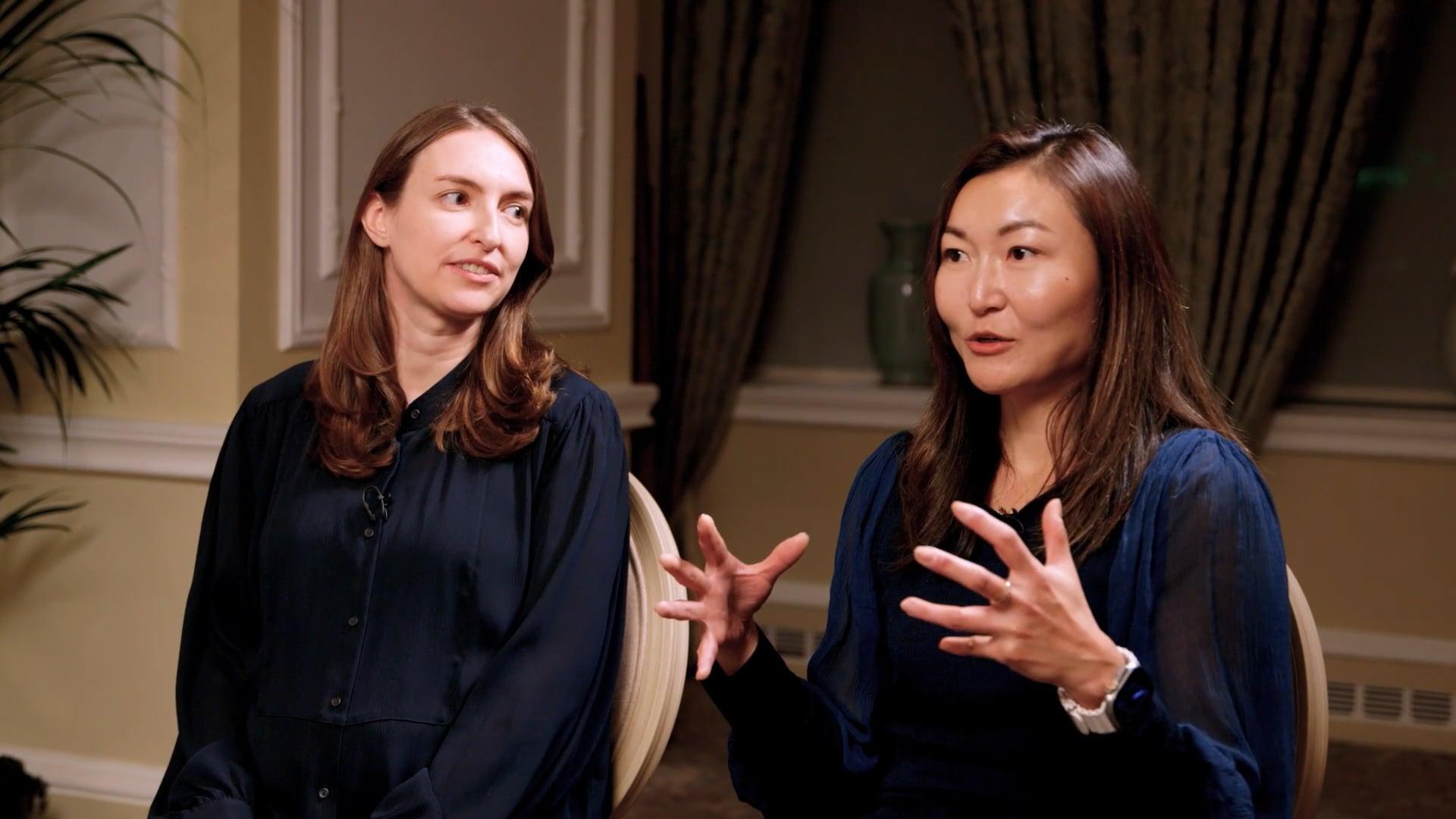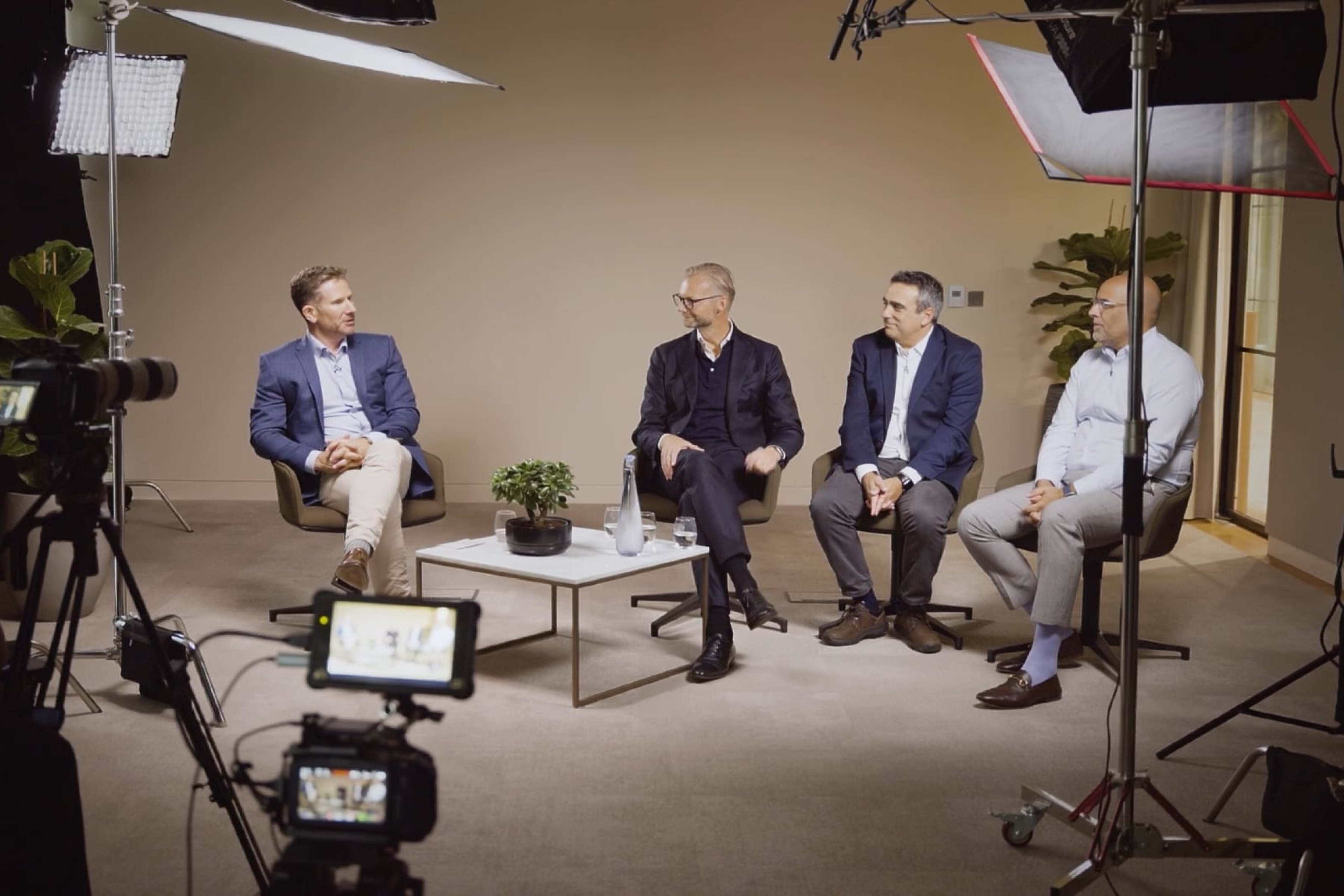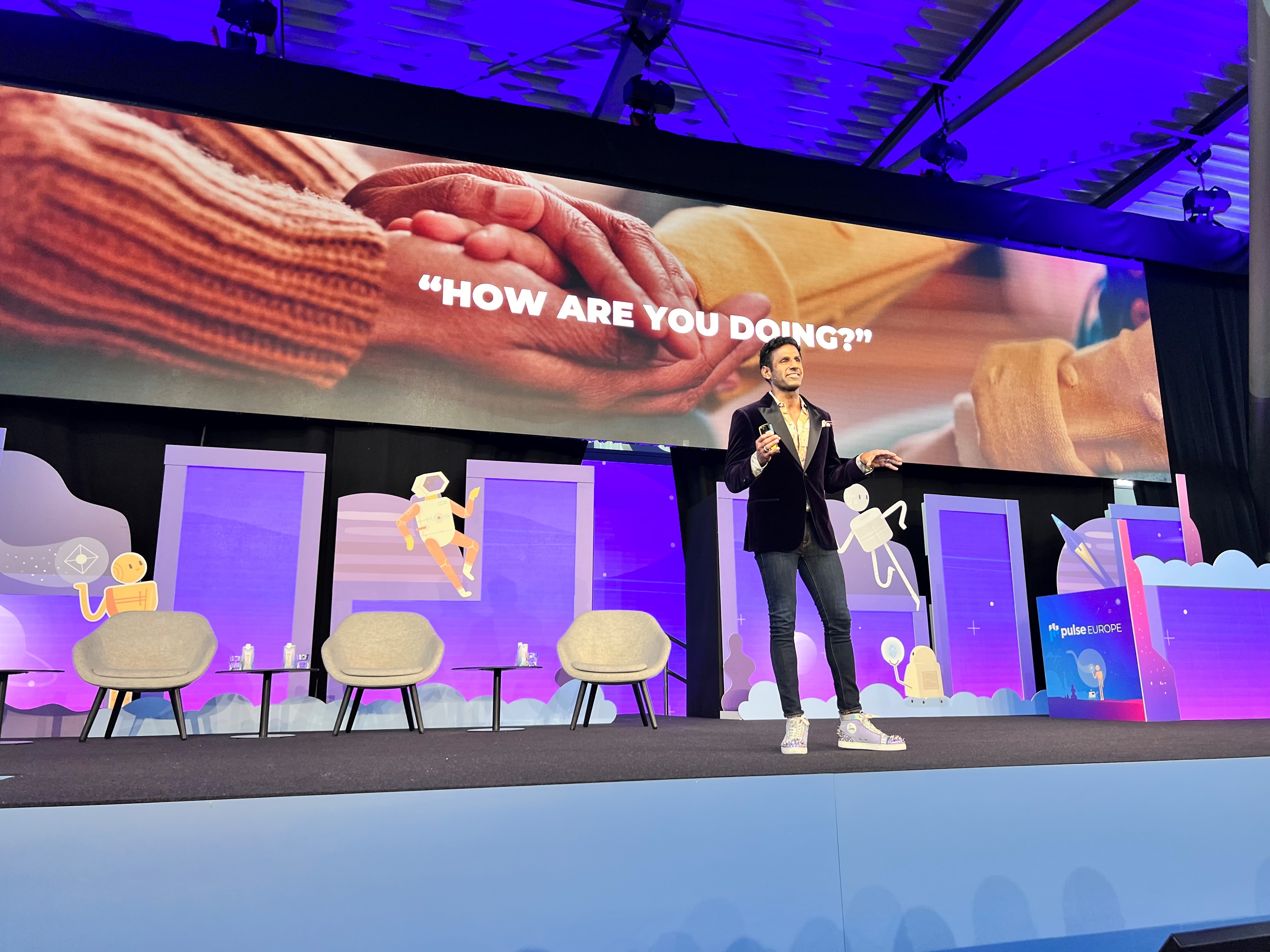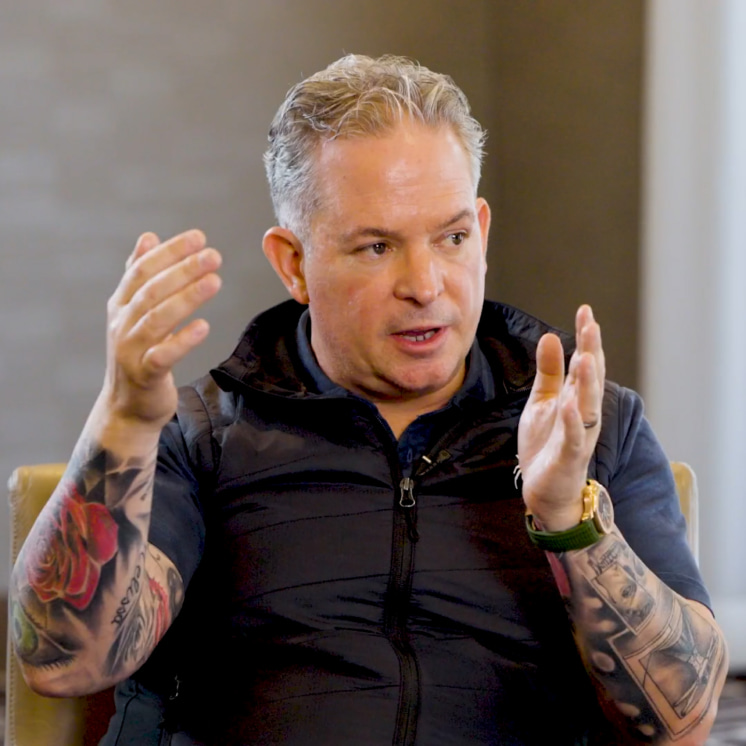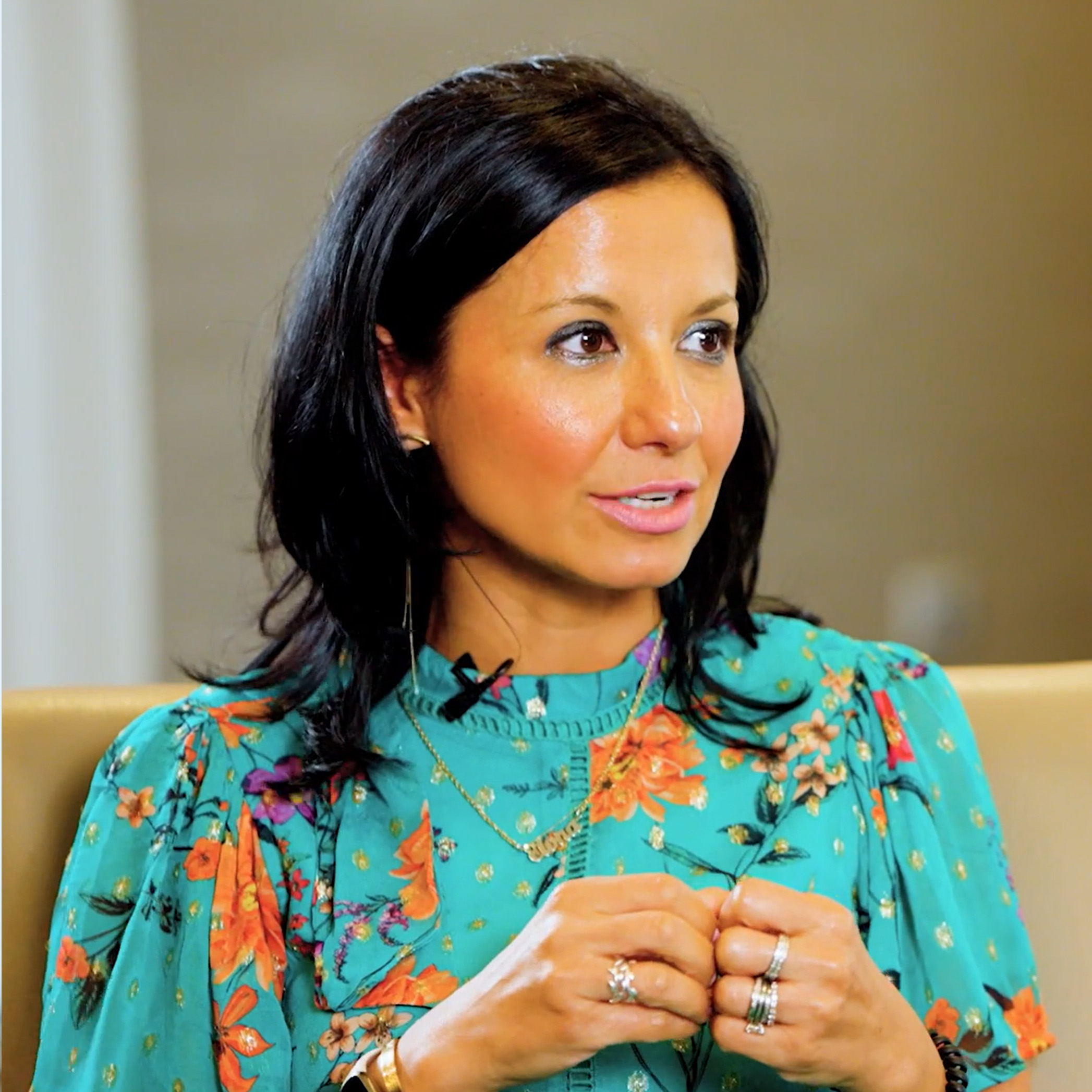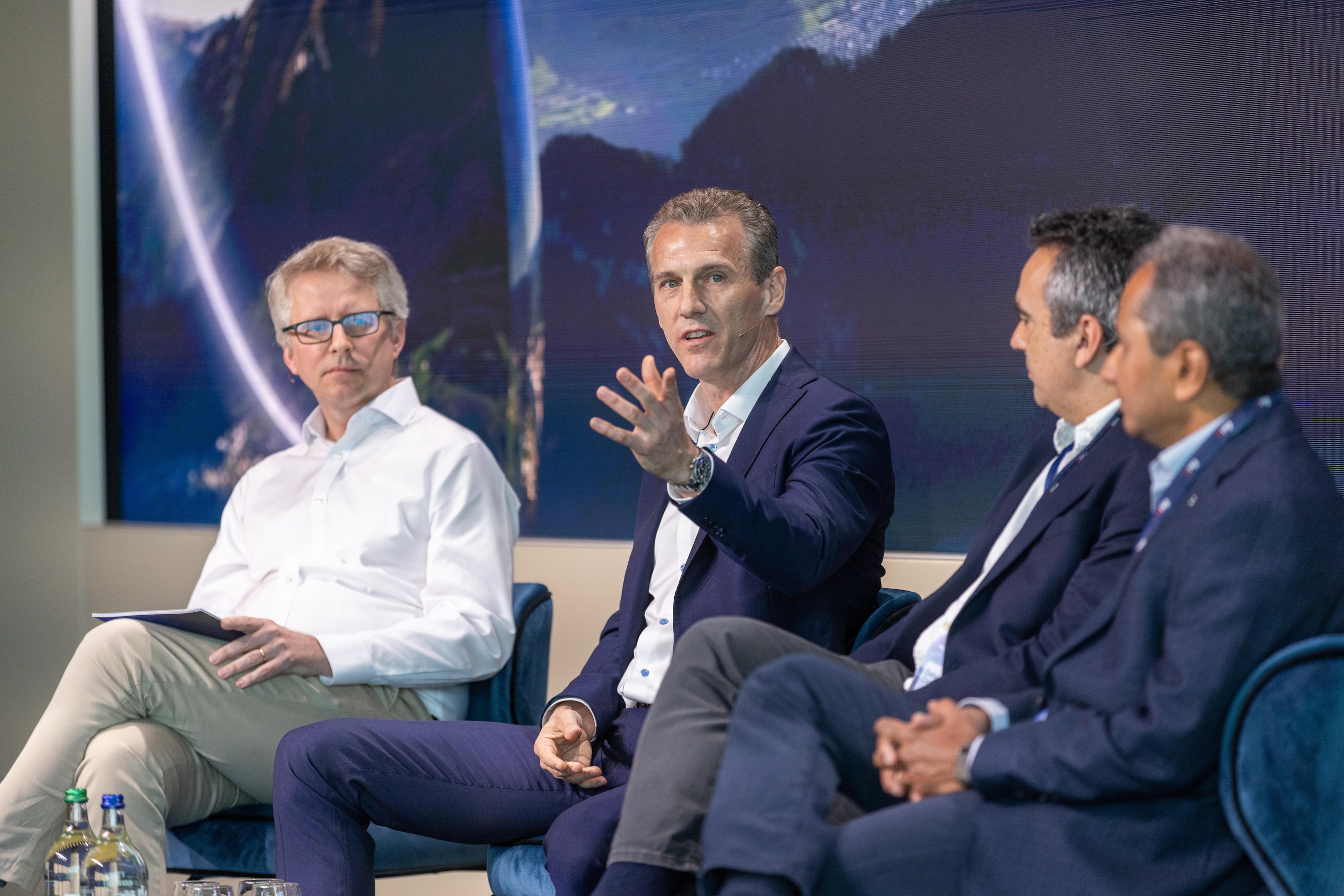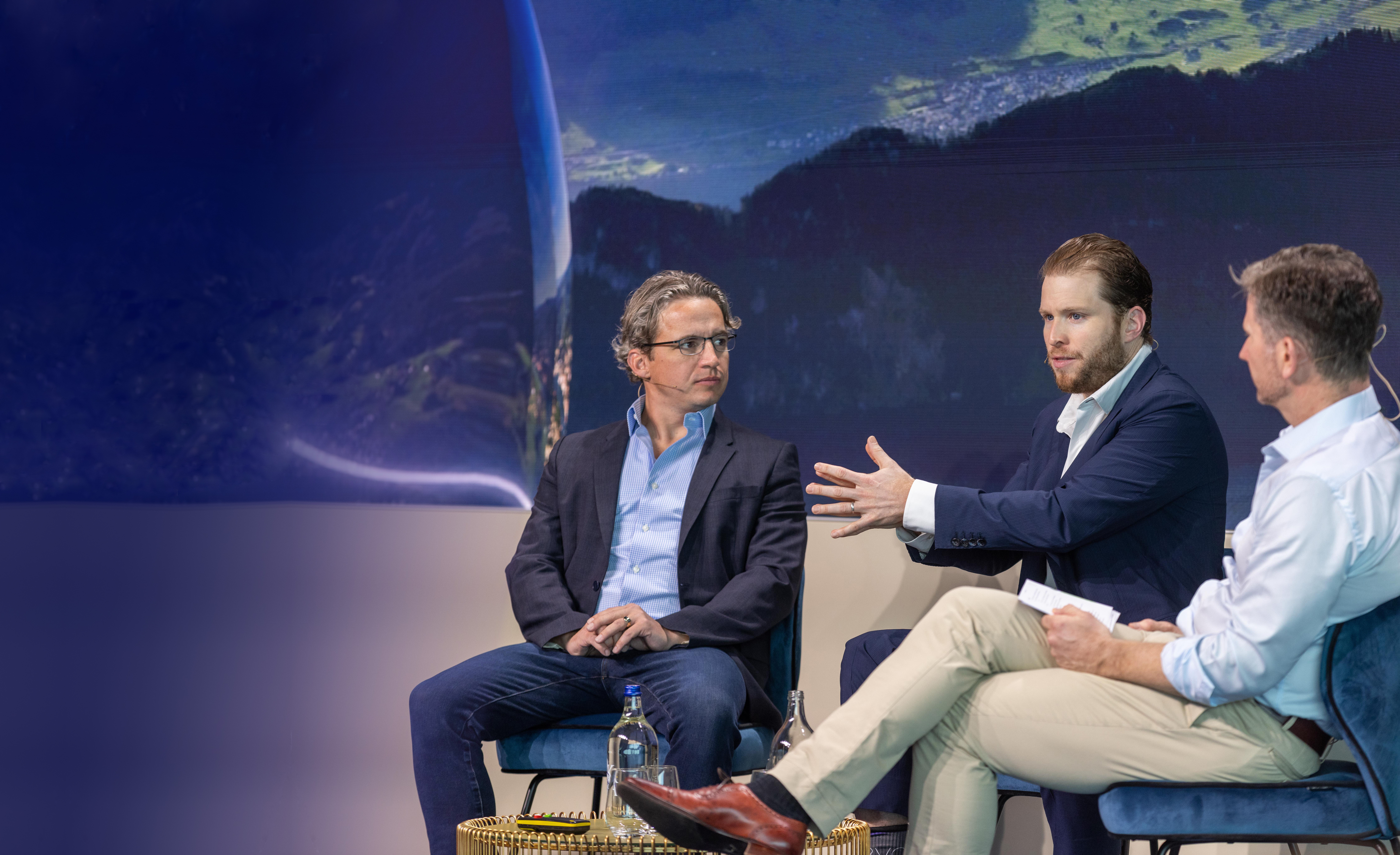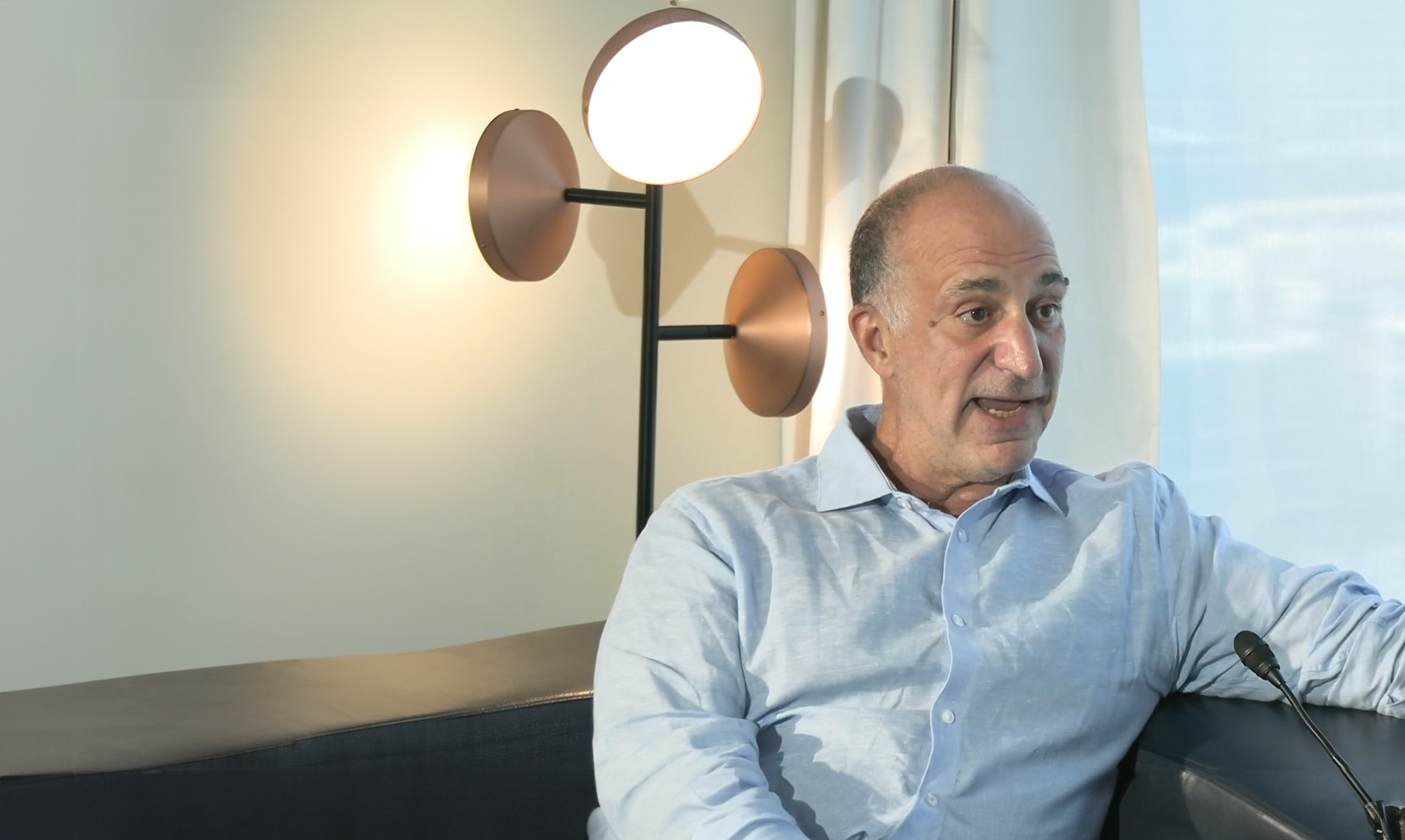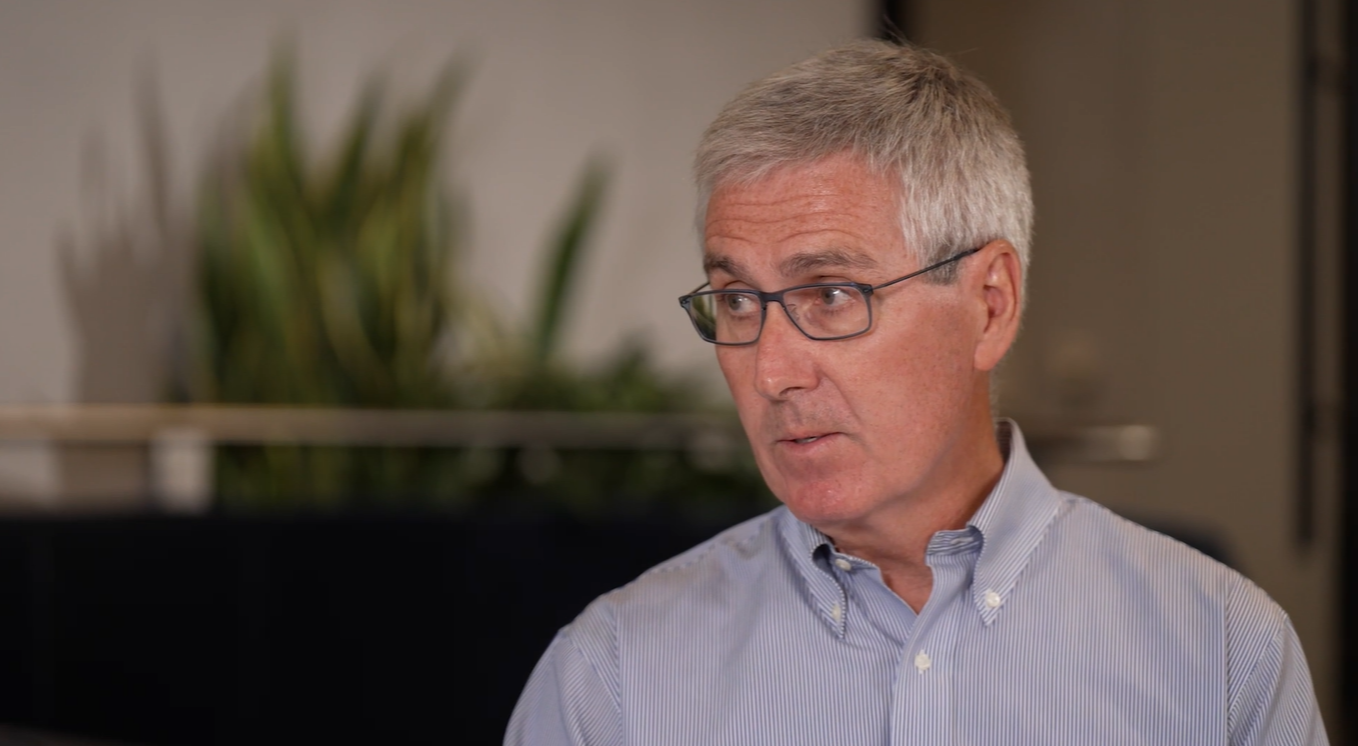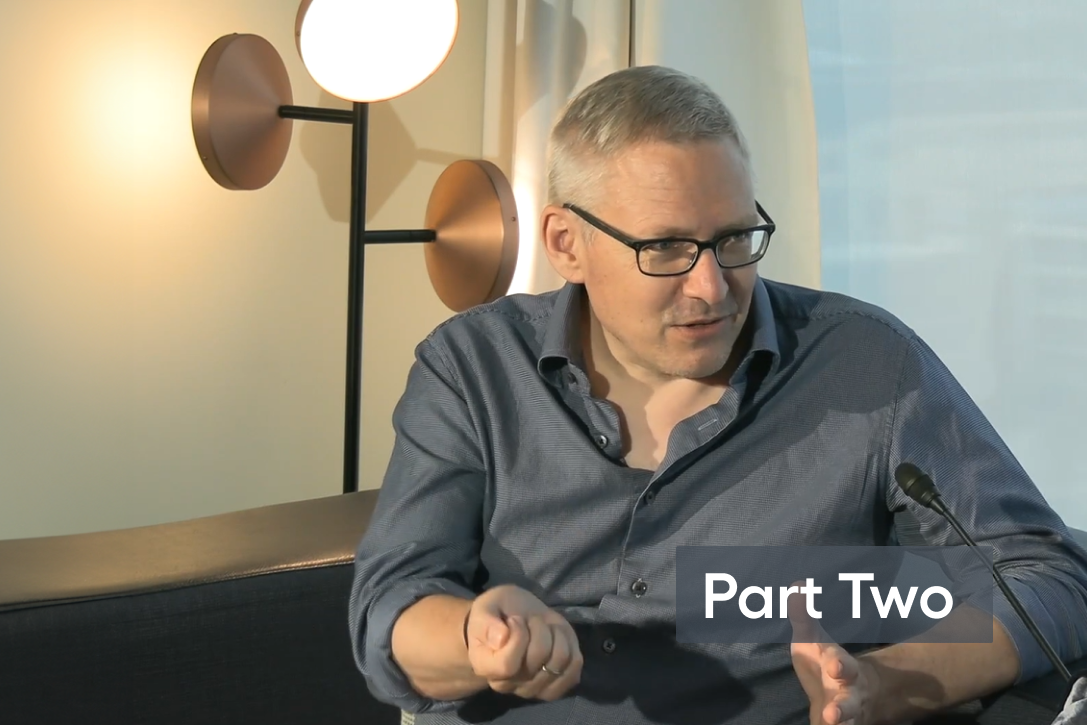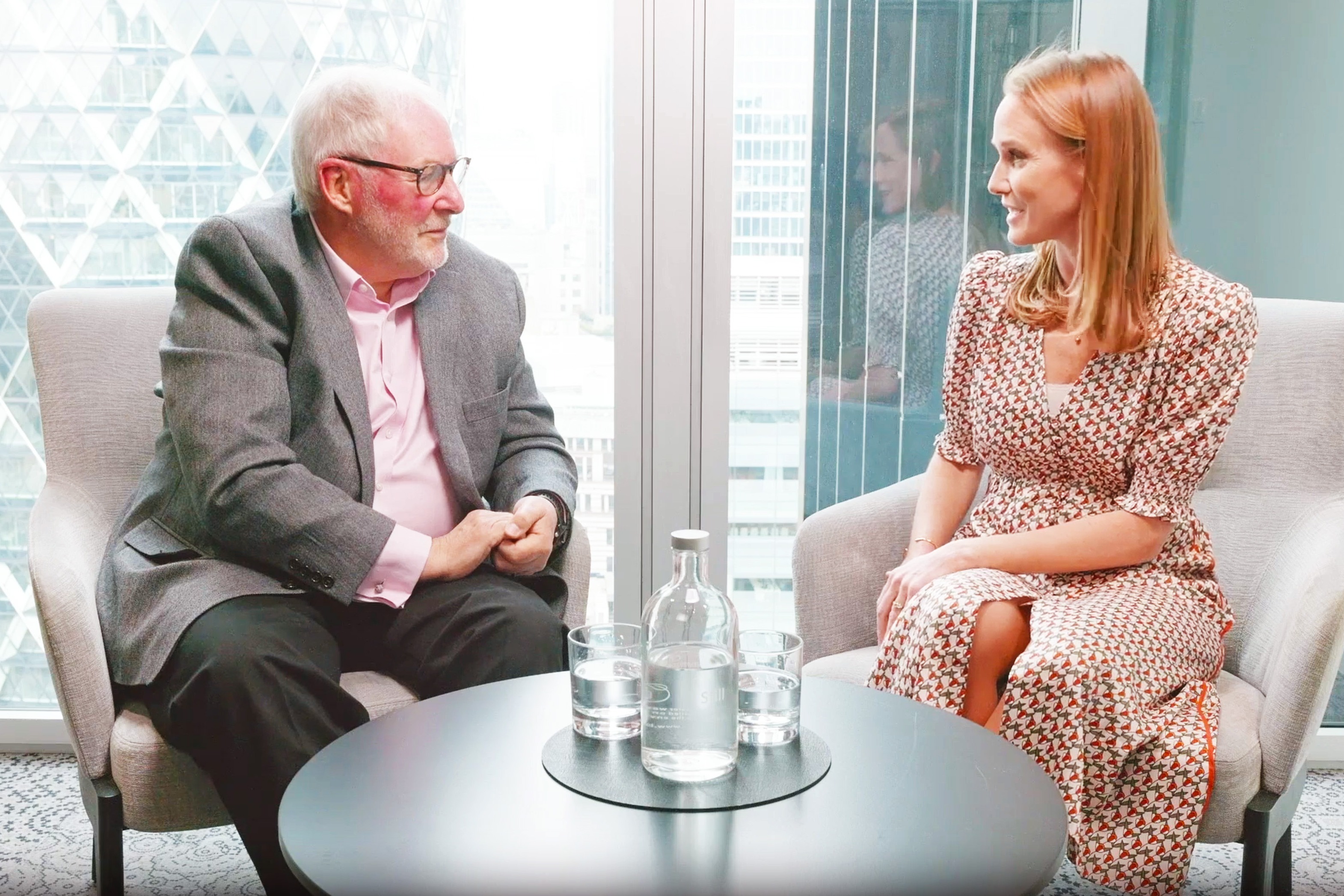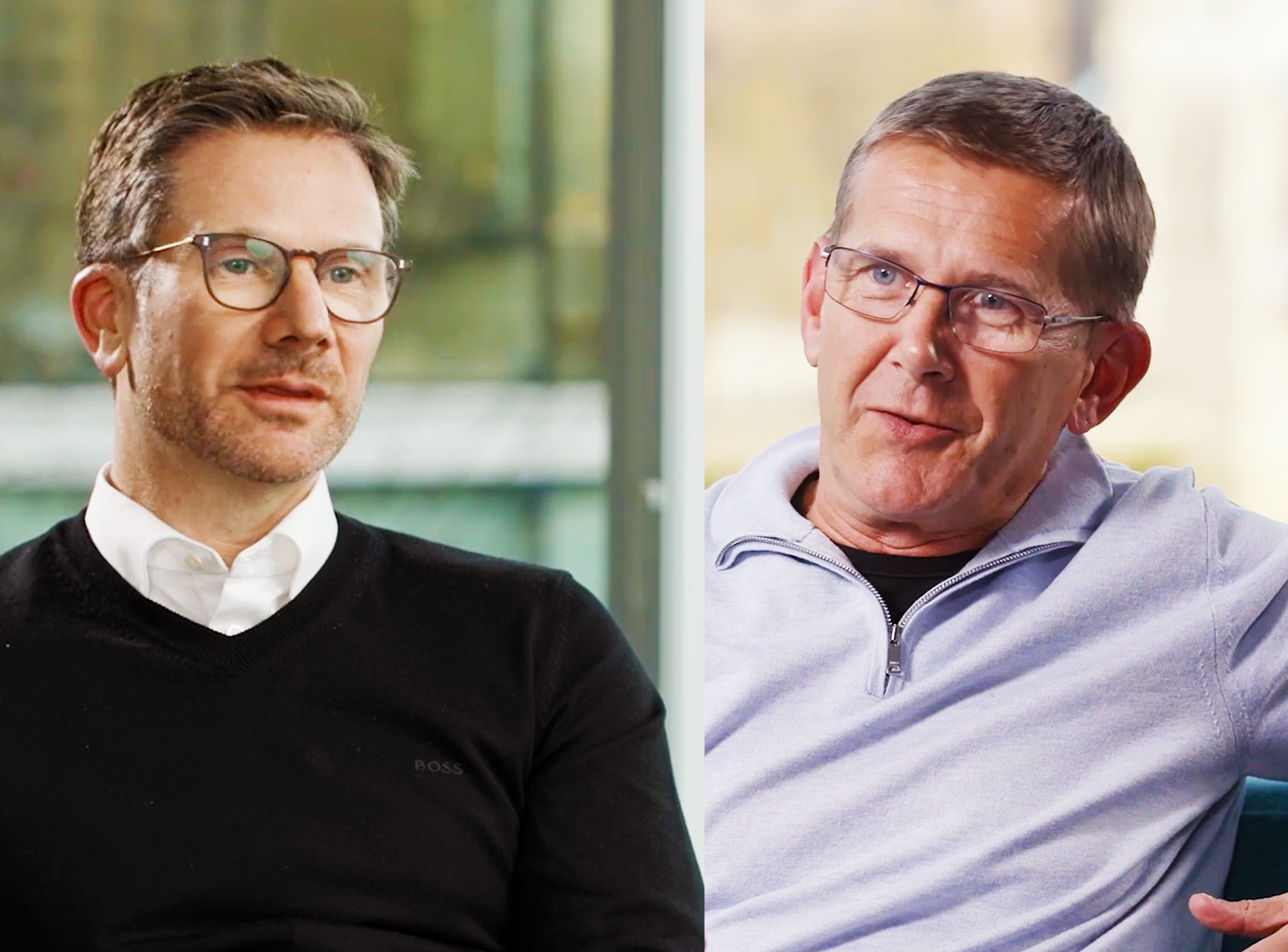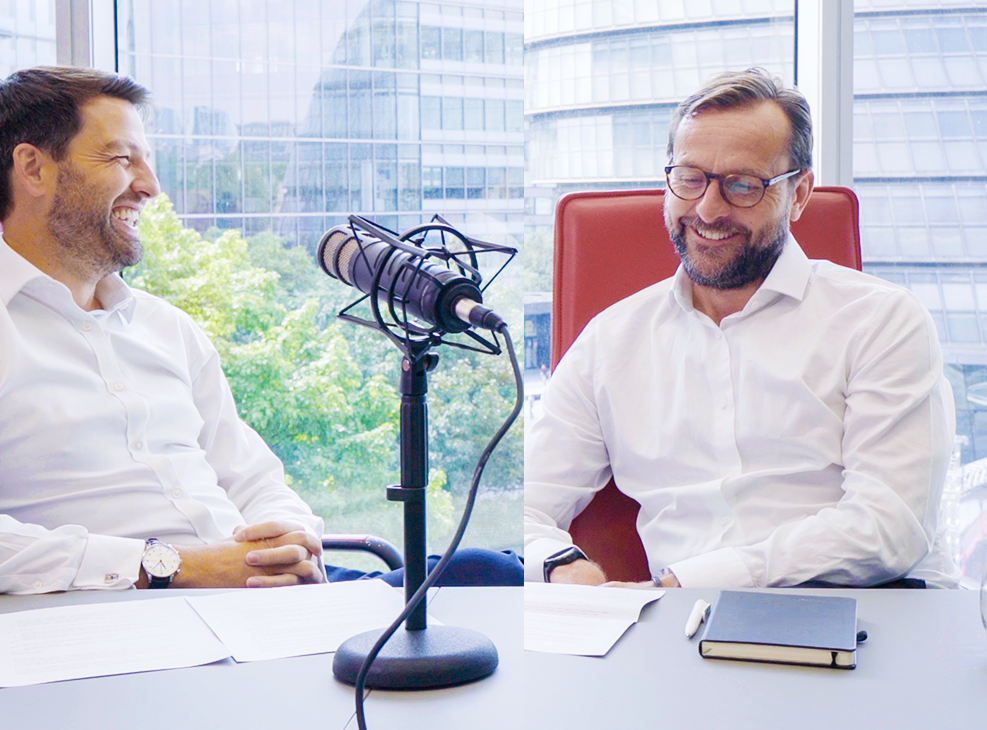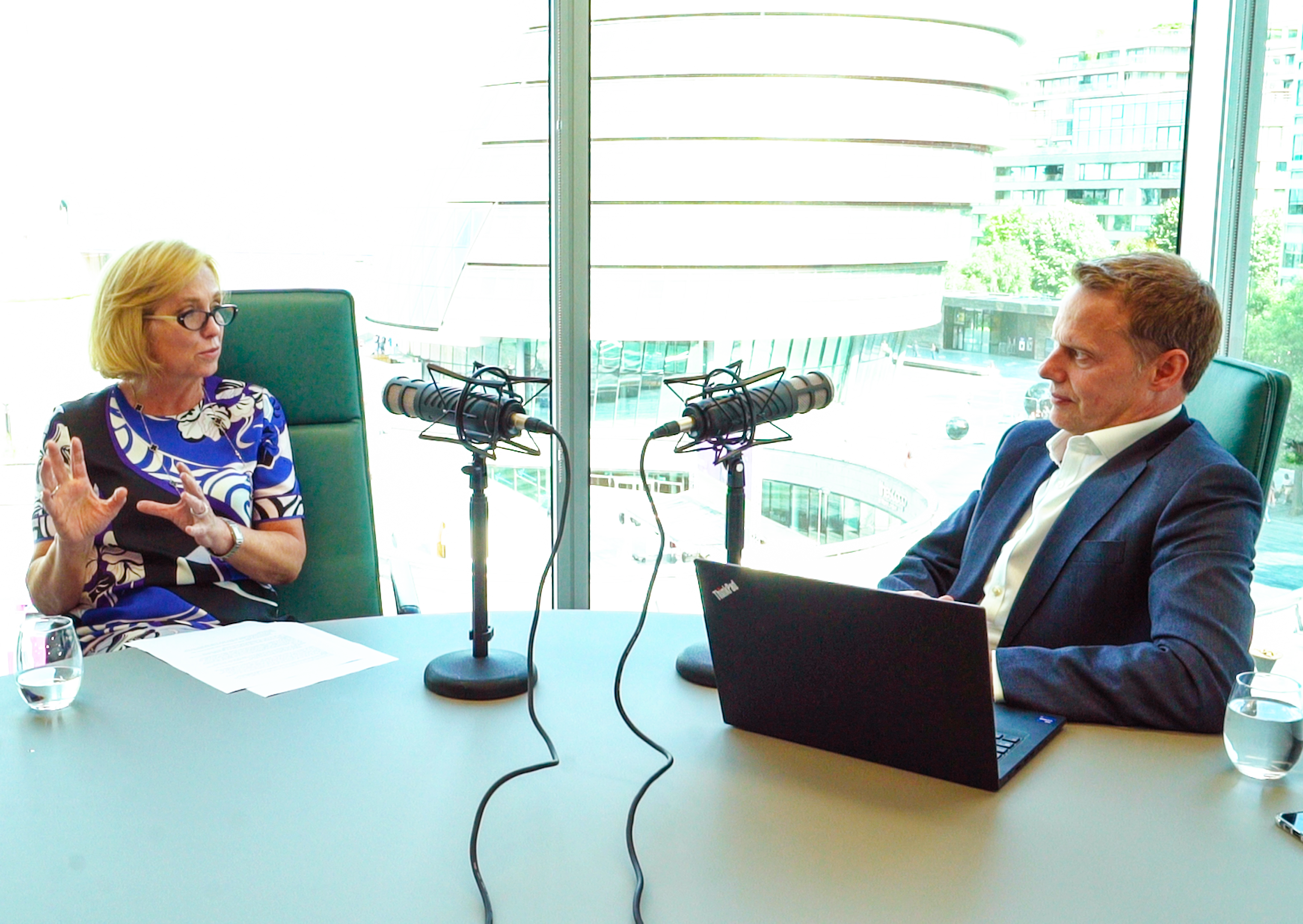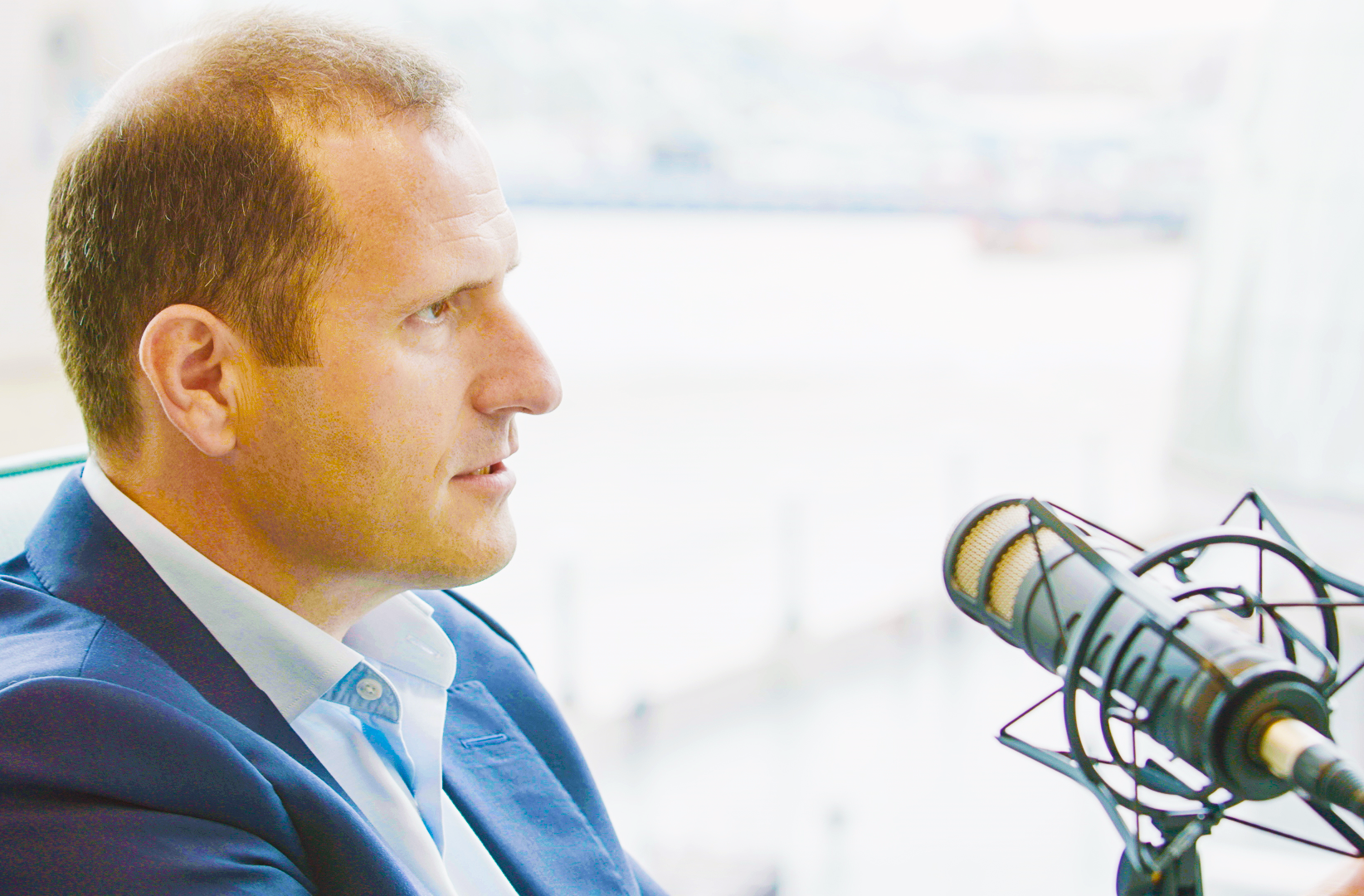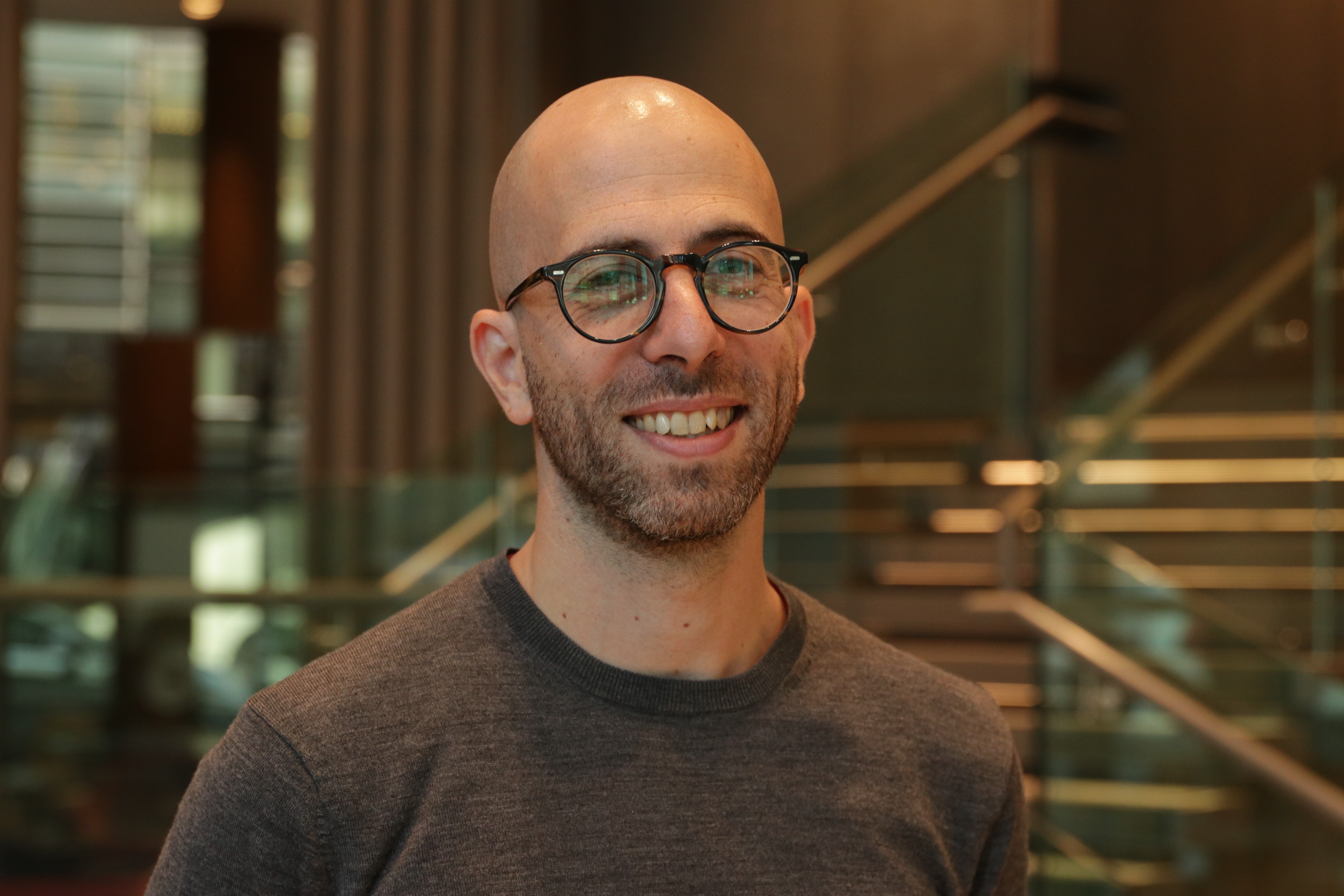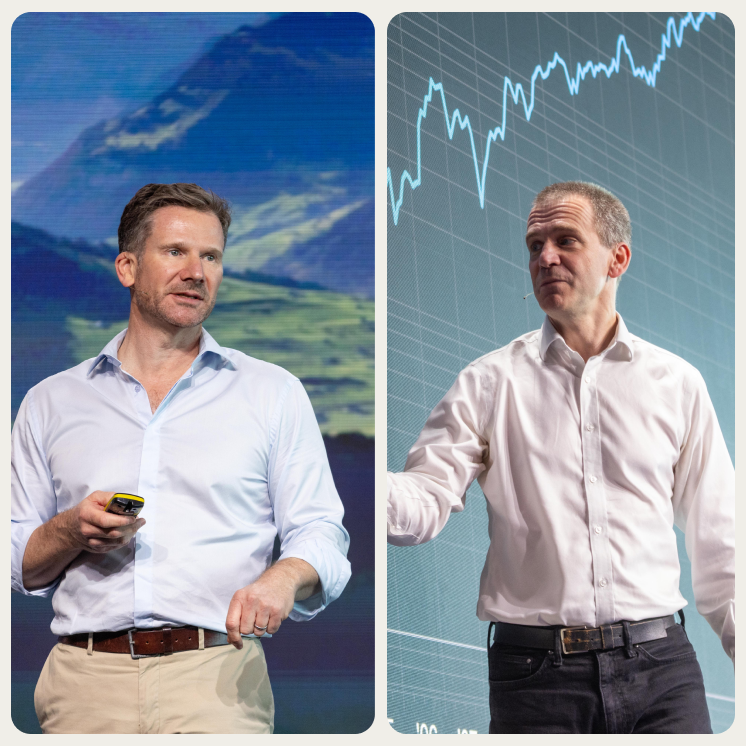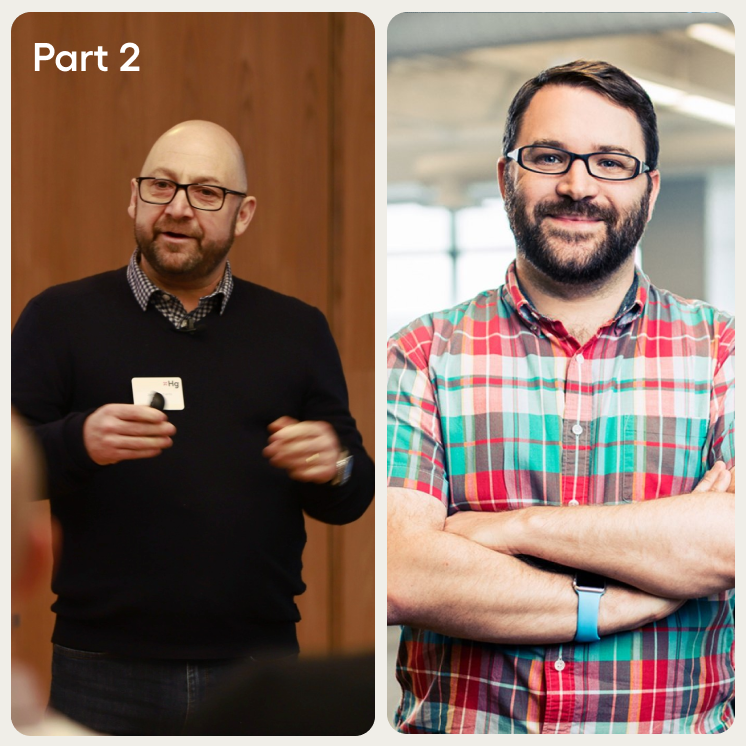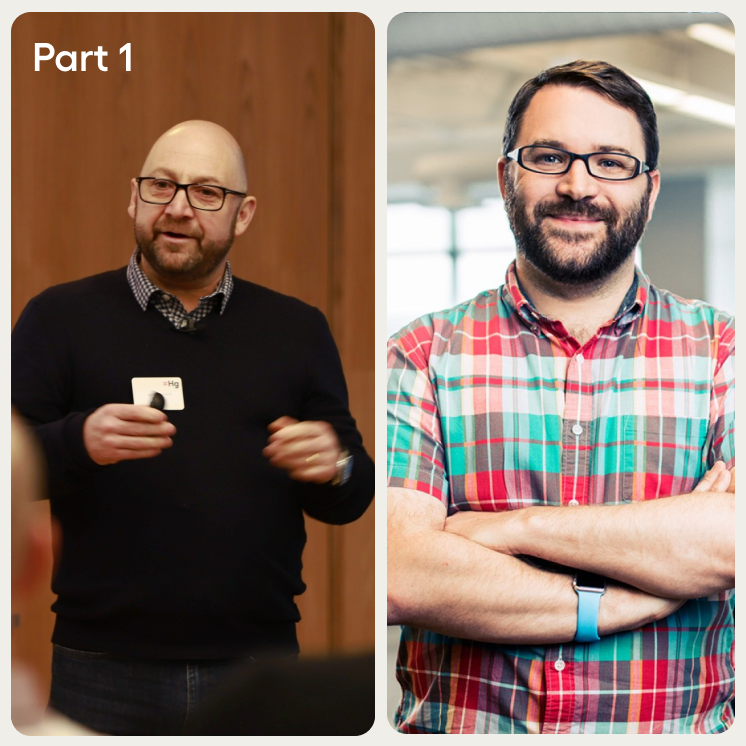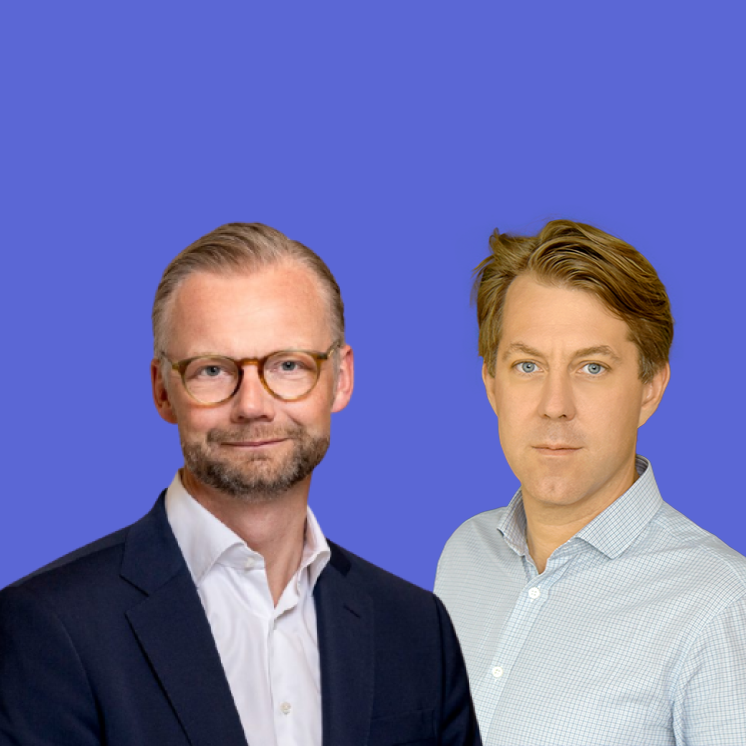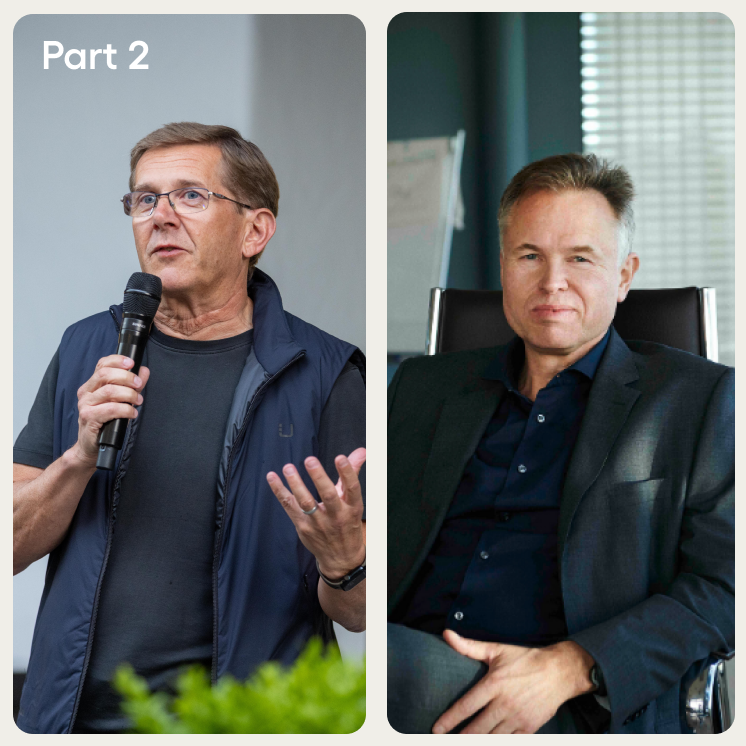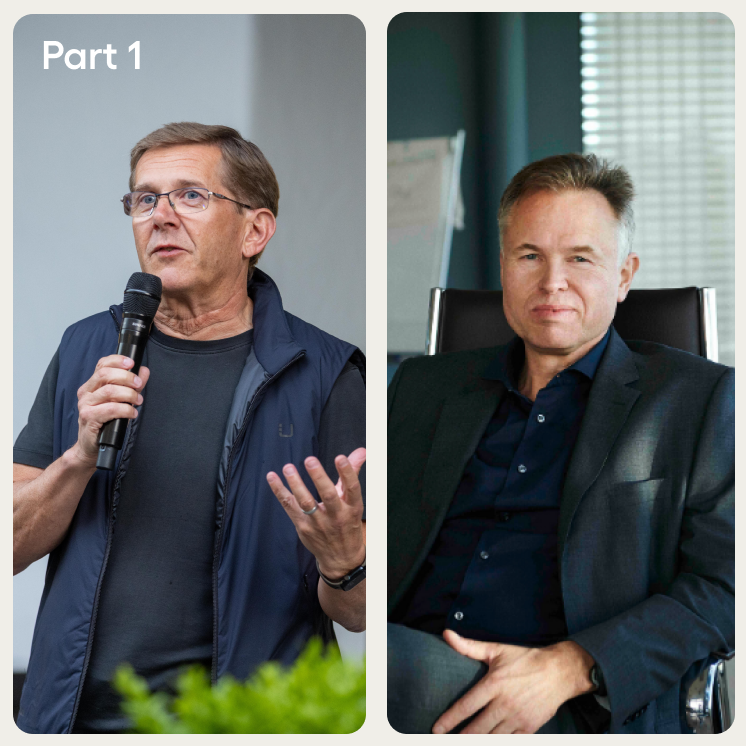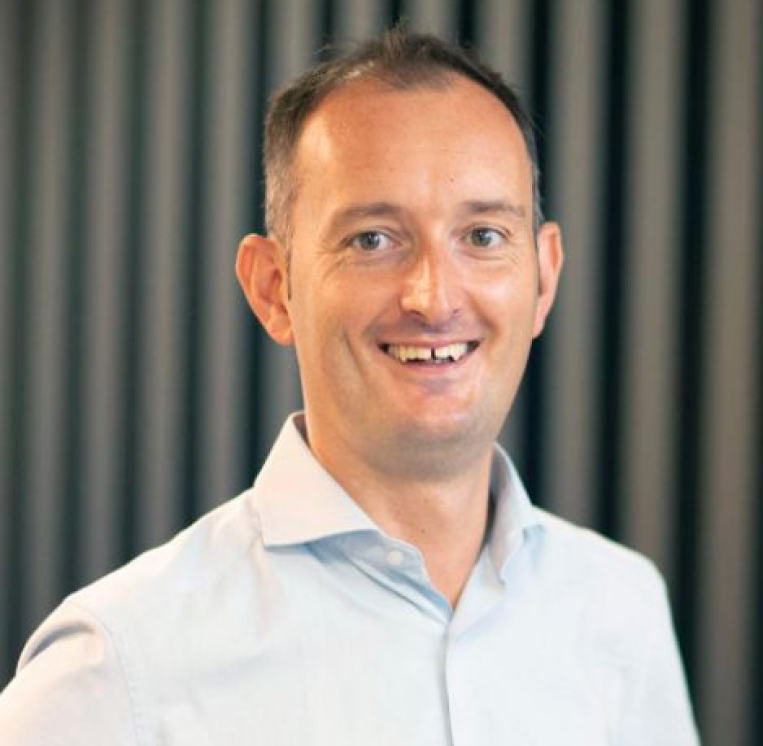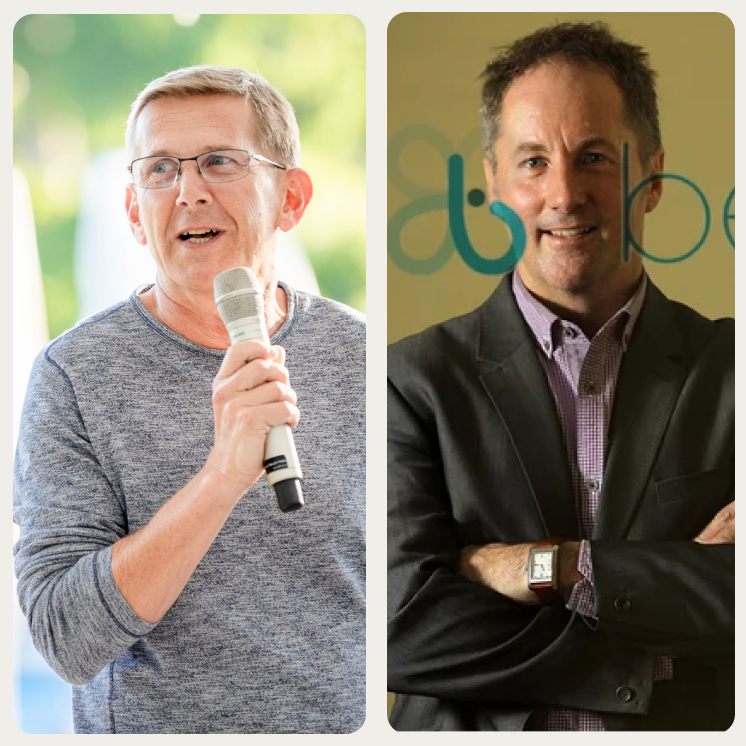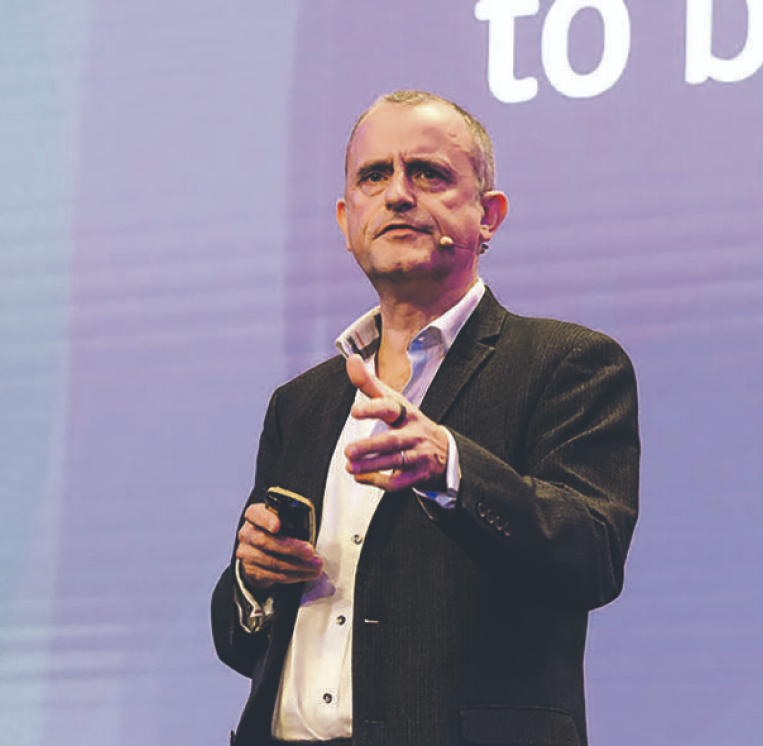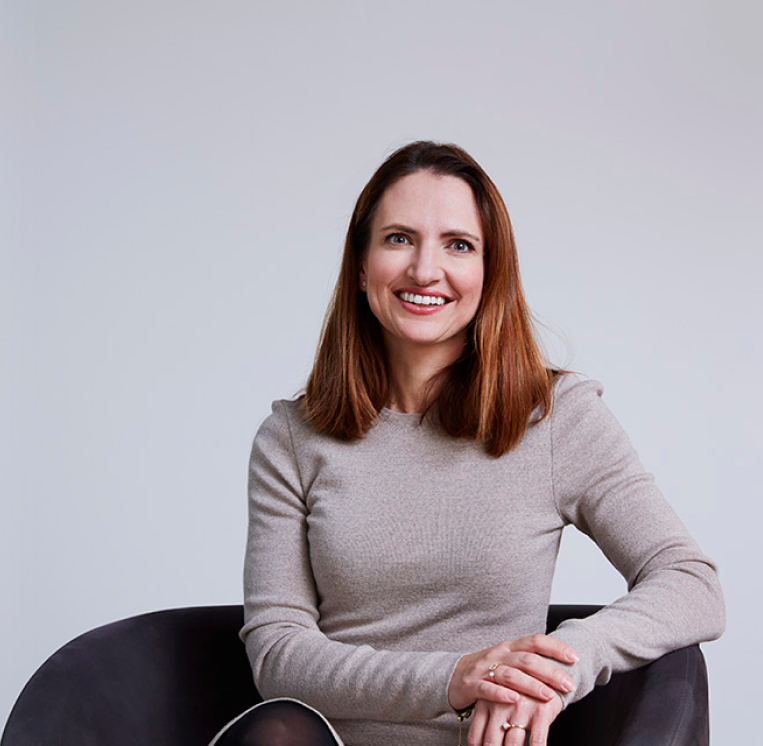Orbit Podcast
Orbit 41
Thousands of small experiments: Merete Hverven of Visma
As the CEO of Scandinavian software success story, Visma, this is Merete Hverven's second appearance on Orbit. Last time she pondered the reasons behind the Nordics' outsized contribution to the world of software, this time the same values of openness, competency over hierarchy and willingness to experiment come into play when running a scaled multinational conglomerate.
With the complete opposite of a one-size-fits-all approach, Visma has partnered with companies across 32 different countries, collecting what they do best and disseminating it across the group. The key is to be humble to as you enter each new marketplace: "don't try to be interesting, be interested".
Listen on:
Episode Transcript
Nic Humphries
Welcome to Orbit, the Hg podcast series where we speak to the leaders of some of the most successful software businesses on the planet about how they built and scaled those businesses. I'm Nick Humphries, the senior partner of Hg, and I'm delighted to be joined today by Merete Hverven, the CEO of Visma. As one of Hg's longest and, frankly, one of the partnerships that's been closest to my heart, Visma has excelled over the past two decades plus pioneering software as a service and they are no doubt poised to excel in some of the upcoming tech revolutions that might happen over the next few years. So, thanks for joining me, Merete.
Merete Hverven
Thank you for having me.
Nic Humphries
This is actually your second appearance on Orbit, so thank you for that as well.
Merete Hverven
It is.
Nic Humphries
The last time we spoke a lot about why the Nordics are such a great place for kind of technology businesses. How would you say that the Nordics in general are positioning themselves for the next few decades from a technology point of view?
Merete Hverven
Wow. That's a really good question.
Nic Humphries
It's a big question.
Merete Hverven
It's a big question, but last time I was here I stated that in the Nordics salaries are quite high and, in general, it's always been also quite low unemployment rate. That continues to be the case. All of the countries are really small so, to stand out, we have to continue to invest and focus, learn and grow based on the new technologies coming our way. We have to be massively productive. And, I'm really proud to say that even in the last survey that was carried out worldwide, the Nordics, even though very, very small, very few inhabitants rank in the top 15 across the globe with regards to being highly digitized and continue to be so also.
Nic Humphries
Yeah.
Merete Hverven
So, I think it'll continue as we have in the Nordics and it's been working so far so I guess we'll continue with that journey.
Nic Humphries
I guess one of the other features I've seen, which is slightly away from tech, is because the local economies are great, but they're not big enough to sustain really big businesses in their own individual country, right-
Merete Hverven
Yeah.
Nic Humphries
...I think it just creates mentality of... I mean, I think about yourself and your own background and family background, I think about a lot of the other managers and senior team at Visma, people can have this international and expansionist mindset from a pretty early age. I don't know whether that was part of your background or whether it's part of career, but that seems to be something that is inherent in a lot of people.
Merete Hverven
Yeah. I think you're right. We have small countries we could never manage on our own. We have to look outside of the countries and learn from the best of the best. So, an example when ChatGPT comes, of course everyone has taken that into account, but we've always been the front-runners looking outside of the countries, looking for technologies and other ways of working to be productive and actually be able to scale coming from the Nordics and then going external than actually just having to look at your own hometown because it won't scale. It's not big enough.
Nic Humphries
So, if you don't mind Merete, I'm going to take us back a little bit, because one of the things that I observed sitting on the board of Visma back in 2009, 2010 was that you were the first company that I was aware of in Europe that really thought seriously about cloud and SAS technology and really embraced it in a way, I guess, reminiscent of the innovator's dilemma.
At the time you were a scaled business, you were mostly on-prem, but you seemed to kind of dive headlong almost into kind of SAS and do that in a way that I found to be very unique and I've tried to take that experience and help other businesses I've been involved with to think about new technologies in the same way. I'm thinking of those multiple experiments. Why did you do that? Why not just pick one way of doing things? So, anything you can elaborate on from that period of time about almost the culture of how you think about embracing that kind of disruptive change would be really interesting.
Merete Hverven
Yeah. I think you're touching the heart of Visma. I usually say we are the opposite of one size fits all.
So, in order to be a tech leader and especially within our culture, we never know what is the right bet, but we know that if we make lots of small bets, most of them actually historically have gone really well, based on our competence coming from the Nordics, which is seen as the Silicon Valley of Europe. We were at the forefront of the technological development so, with that knowledge, we have been able to look for companies that we believe will be the market leaders of tomorrow, and they are typically entrepreneurs taking a big risk. We look for the companies that already have seen success from a commercial perspective and then we've been good at finding these startups and then scaling them up. Have all of the experiments gone well? Are all them successful? No, they are not. But most of them are. And, in general, our culture, I think it's just a part of who we are. If you never make a mistake, you're too slow. And, instead of thinking about one way of getting to the goal using one technology, that's not right. It's at least not right for us.
If we would only have one supplier of technology, first of all, you give that supplier a lot of bargaining power because you are in massive need of them so we don't want that. We want to be spread across and like everything else in the world, all of the different technologies, they can be the best depending on what problem you want to be solved. So, we are very open. Our tech stack is open as long as it's good technology, used for the right problems, experimenting, failing along the way, and we're good at also gathering all this data.
Today we have 180 companies in Visma and we have made 16 acquisitions so far this year. So, we are definitely growing and not only organically but also in organically and making use of all that competence. Where we have had success, we showcase that to all of the other businesses. Where we've failed, we also showcase that to all of the other businesses so instead of all of them having to do lots of experiments, we're doing simultaneous experiments across and then when we learn from that, it is by far the largest entrepreneurial network that we have in Europe. That's what makes us fast and it's also what makes us a success in the market, I believe.
Nic Humphries
Yeah. I reminded Jim Collins, Good to Great. One of the key principles there was, I think, it was fire, bullets and then cannonballs. So, do lots of kind of small experiments, the bullets, and then when you find the ones that really work, you can put a huge amount of effort behind them and it seems to be that same philosophy. As you say, you've got the huge advantage that you don't have to kind of top-down, dictate what those experiments are. You've got 180 entrepreneurs that are running independent businesses and they can themselves be experimenting.
Merete Hverven
Yes. And then we gather the experiments because they're highly competitive and everyone wants to win. So, when they see what works, they actually tend to copy that, but they're making that choice themselves. We're not telling them to do it. And that's a large difference, I would say.
And, I also think a lot of people often ask, "So, how do you create that culture where you do these experiments and actually you can fail along the way?" It's also important to make sure that you don't only celebrate success, but you also celebrate failure. Failure is a part of doing business and every time someone makes a mistake, it's important to not finger point and look for who made the mistake but come together and sort of reason around, "Okay. We're here now. What do we do? What did we learn and let's make sure no one else does this."
It's a very different way of working. If you always finger point, and if it's terrible to make a mistake, you will not have entrepreneurship, you will not be innovative in the same way and you won't experiment. And, in general also, going back to what you mentioned on the bullets and also shooting with small guns, I think it's also important to split when it's a project and when it's an experiment because not everything can be an experiment. I don't think you guys would be really happy with us if suddenly our top line and bottom line just drop because all the experiments were unsuccessful.
So, in general, I say that a project, you can compare it to a budget. In general, you can make experiments which actually end up that the budget is totally off balance, but we experiment within a budget and there's always room in the budget to make a lot of experiments. And then so just, yeah, differentiating between what is a project, where can you not go wrong and what is an experiment and challenging. Experiments can be quite large. I would say some of our acquisitions have maybe been an experiment. Let's say 95% of them have been great, 5% have not been so great, and then you naturally have to fix that as well.
Nic Humphries
I think you are helped a lot by the fact that the numbers are 95%, 5% as well, by the way-
Merete Hverven
Yeah. That's true.
Nic Humphries
... so it's very easy to kind of look at the ones that haven't worked when it's very small proportion so well done from that point of view.
Merete Hverven
Thanks.
Nic Humphries
Visma has gone from strength to strength and to put some rough numbers on it, €2.5 billion of annual recurring revenue, one of the biggest kind of ARR businesses on the planet, never mind kind of in Europe at this point and continuing to grow at very attractive teens plus organic rates. As that scaling has happened, it's not only happened from a pure revenue and numbers point of view, but it's also happened across many, many kind of countries, many geographies.
Merete Hverven
Yes.
Nic Humphries
You can probably update us on exactly how many, because it changes almost every-
Merete Hverven
32 countries.
Nic Humphries
Which is one more, I think, than last time we chatted with M&A. So, what kind of crosswinds do you come up against as you think about breaking into new markets and new countries? And, one of the obvious questions would be, is tech just so ubiquitous that it doesn't matter? Tech is just agnostic to countries and cultures. It's okay. Everything's just the same.
Merete Hverven
I would love to say yes it is, but the answer is a clear no.
I think every time we enter into a new country, we are very humble to the fact that countries are different. There are large differences with respect to naturally culture, legacy, habits, how you go about being together with other people so I usually say that when you cross borders, common sense is not so common.
And being very thoughtful and humble to that fact, not entering into a new country stating that, "Yeah. Based on my experience and we're in 32 countries, we know what's the right thing to do." We always enter in and we actually spend quite a lot of time understanding, "How does it work here?" So, our strategic positioning, yes, I would say that you can see similarities on how to actually create great products, but what kind of interface the users would like, what kind of colors they want, what the competition looks like, it also has a huge impact. How the people work together and how they find their way, very, very different.
So, every time we enter into a new country, we do make quite swift analysis and get some expert advice naturally but I also read up. I love the book, When Cultures Collide. I always read up getting the do's and the don'ts and how to negotiate, how to get to know people so, of course, there are crosswinds, but I do believe that the crosswinds, they become minor when you're humble to the fact that you are entering into a country that you do not know and you want to be interested in getting to know them. So, in general, another thing I usually say is, "Don't try to be so interesting. Try to be interested." And, if you are, and if you have great conversations, you are let in quite swiftly if you play along the lines of the games that are played in that country.
Nic Humphries
Yeah. It's a great experience because 32 countries is... Lots of people claim to be multinational and all those kind of things. It can often mean the US and the UK or the US and the UK and France. 32 countries with very different cultures from kind of Latvia to Romania to Sweden, Norway, Spain, Portugal. There's some very, very diverse cultures there.
Merete Hverven
Definitely very different ways of working. And, even the countries that are very, very close to one another like a lot of people think that Nordics is Nordics-
Nic Humphries
It's just one place, isn't it, the Nordics?
Merete Hverven
Right. Right. Just the differences between Norway and Sweden, I could talk about that for eight hours. And, I guess I've been maybe lucky to that fact because I've always traveled a lot, always since I was small. Sort of born in the States, came to Norway. I've lived and worked in Switzerland and Denmark and Sweden, back in Norway again. I've always found it to be very interesting to see how you work and how you're successful in different ways depending on the country that you are in.
So, it's fascinating and if you just find your way, even though we always look for new companies that fit our strategic position, we also say that it needs to fit our culture. That doesn't mean that the culture across Visma is exactly the same, but there are some things that really binds us all together like our values. I could naturally talk a lot about that, but we probably don't have time. But our values are being responsible, being entrepreneurial, being dedicated and being inclusive, loving the fact that people are different and how to actually explore those differences to create even better results.
And these things are something that we look for when we acquire companies, making sure that it is a cultural fit because there's lots of go-to-market freedom in Visma. That means we don't have time for political games, we don't have time for people saying one thing and doing something else, making sure that what you see is what you get, very open, very transparent, quite direct for what we want. We will walk away from the deal if it is not a cultural fit. If the founders want to do another strategy with their company than we would, we wouldn't acquire it. We would be open to the fact and step away. So, there's lots of things that really sort of bind us together, which needs to be in place to have that much freedom that all of our entrepreneurs have.
Nic Humphries
I think one of the things I've seen that ties into that kind of theme as well, and it's something that took me a while to learn coming as a Brit from probably, just from history, a slightly more hierarchical culture. I don't think I'm particularly hierarchical, but I come from a country that is-
Merete Hverven
You are not.
Nic Humphries
... but just the extreme... I regard it as extreme relative to other cultures, I think it's probably Norwegian as much as anything else, view that competency is what matters more than anything else.
And when you make that statement, it seems completely obvious. Everybody would say, "Well, competency matters more than title or age or gray hair or whatever it may be," but I think it's really, really embraced. Is that a Norwegian culture thing? Is it a Visma culture thing? But it seems to be such a powerful enabler of the group.
Merete Hverven
Yes. I think it is highly Norwegian, but also across the Nordics. It's like people don't care for the title that you put on your shirt. It's more about who are you, what do you know, do I respect your competence and also do I respect the person that you are? And then, naturally we all know that a leader and where the culture comes from, Visma coming from Norway and me as a leader, you have an important role to play. You have to sort of... How I act, it actually has a significant impact on the rest of the group. And when we look for new companies and when we look for new leaders across the firm, we look for people that actually like a flat hierarchy, that like to make sure that yes, you have to be smart and create good strategies, but they're worth nothing if you don't have followers. So, if you're not able to engage with impact, you don't get anywhere and you especially do not get anywhere in Norway. And that is something that we push across the group. And a lot of the entrepreneurs coming in from other countries where the hierarchy is very different-
Nic Humphries
In the UK, for example.
Merete Hverven
In the UK, for example. In the beginning they really don't understand it but, after a very close time, they do acknowledge it and they come to like it and love it. And I actually think that that is also one of the reasons why we're able to be so innovative because I get graduates in the office stating, "Why are you doing that? I would think differently." And we love that. We want that. We encourage that. And our engagement is sky-high. It's amongst the top 5% in the tech business and I think that this culture, so much empowerment, so flat, if you like it, you love Visma.
Nic Humphries
I'm going to get slightly nerdy here and go slightly off script, but you mentioned a bit of the leadership index. You mentioned kind of employee engagement. Can you just talk a little bit about how you measure those things and how disciplined you are about that? I know obviously we see that reported on a regular basis to the board. I think it's unique in the sense of how you are able to view what is, in theory, a soft issue, people skills, but actually view it through a fairly analytical and measurable lens as well so if you can share anything around that, that'd be hugely helpful.
Merete Hverven
Of course. And I like that you put that forward because I believe, in general, the financial results are just a consequence of you focusing on what really drives the business and people, they are a massive driver of the business. Naturally you have the customers and you have tech and everything, you have to measure it. You have to get the numbers in order to work with it. So, looking to state that, if you look at Visma and many other businesses, I would say that winning in this business is more about having the right people than anything else. In order to make sure that you actually have the right people on board and that they're massively engaged, you have to measure it.
So, we measure engagements and the engagement net promoter score, we measure that every other month for all the businesses. And then, they can, if they want measure every month, and actually 70%, they do. It's a very short questionnaire and it is research-based questions that are linked and correlated to engagement which, again, is correlated to performance and financial results. And, in addition to naturally following the overall feedback that the employees are engaged in Visma, and if I were to just pick one question which correlates with all the others, it's, "I would recommend Visma as a great place to work."
In addition, you know that the leaders have the largest impact on the business. That's why also, every other month, we measure all of our leaders. They get feedback, all of them that have five reports or more, because it needs to be anonymous, actually, who is answering naturally. And we measure that. Our leadership index is 74. That's also top 5% in the tech industry where each leader gets a report. Everything is automated. It's just on the screen and they get a report from their employees stating how well they're leading their group, how much potential they're getting out of the group. And, we actually follow down the red leaders. How many there are, I can say that today we have seven red leaders out to 1,450, and of course a red leader, you can be that, but not more than six months because when you're changing... Being a leader is not a popularity contest. You can't be popular all the time but, in general, if you have the right leader in place, that will actually drive a massive amount of engagement, which again drives results. So, I cannot afford to have a leader that is not in the right place for a long period of time because you will see the results drop down.
So, yes. I'm very passionate about this and I follow this and when I entered into HR many, many years ago, a lot of people said, "I don't understand. Why are you moving from being a financial consultant, an analyst, going to people? It's soft. It doesn't have anything to do with business results." And I thought, "I will show you. We will measure it and I will show you that it actually correlates with business results." And, I guess, just looking at Visma, we've made a stand that it does.
Nic Humphries
Yeah. And it's very clear to me when you joined Visma know the way we could actually kind of put into real proper results what was happening on the people side of things as the business was scaling, made a vast difference to our success over the last decade or so.
Merete Hverven
And then, naturally, I think it's important to say when you measure it, that's not enough. And actually, when you do measure it, you create expectations amongst the employees, so you have to deliver as well so we, of course, have lots of leadership trainings. Most people that become leaders, they have lots of knowledge within the field, but they haven't usually learned how to be a great leader so we have lots of leadership trainings, coming together workshops. So, we do a lot of things to really equip the leaders and help them become great.
Nic Humphries
I think that's a huge differentiator from what I've seen as well. There's so many companies in which basically you can have highly productive experts or functionally great people get promoted into a leadership position and they probably deserve that, and they're probably capable of doing things over time, but if they're not given training and development and understanding of the difference between being a great salesperson and a great sales leader, for example, huge differences between those two things.
Merete Hverven
Yeah. And, it's also a huge difference if you lead a start-up from leading a scale-up. So, our entrepreneurs that come in, maybe they have a company with 30 employees and then they're supposed to scale that business to have 550 employees. It's a totally different way of leading that group as well. So, understanding that the leadership phases also are different and helping them and equipping them with those kind of competencies, that is an investment.
Nic Humphries
So, you do a lot of acquisitions.
Merete Hverven
Yes.
Nic Humphries
When you do those acquisitions, you've obviously got entrepreneurs typically that are running those businesses because they are not typically huge businesses that may be can have 5, 10, 15 million of revenue or so. What are the results? Cash yourself forward three, four years, are those entrepreneurs all gone? Have they been replaced by professional managers? If they haven't gone, what are they doing within the business? Do you think that stat is important or not? Talk us through how you've created a culture that either embraces that or a lot of people talk about integration and for integration they mean absorption of the product and then everybody has to functionally be managed in a certain way. So, just an interesting question to think about how Visma thinks about that with 20 or 30 acquisitions being made every year.
Merete Hverven
Right. We definitely want to keep the entrepreneurs within Visma. So, typically we look for very successful companies that fit our strategic positioning and the reasoning behind their success is, to a large extent, the entrepreneurs and the people that are in that business. So, when they come on board, we don't integrate, we onboard them. And, of course there are things that matter that we need to help them develop and also that are mandatory within Visma, going back to what you actually have to pinpoint and follow through with regards to financials, people, tech and customers. So, there are some things naturally that are mandatory, but other than that, we make sure to look for what makes that company a success and not change that around. And that's why there's also a lot of go-to-market freedom for the entrepreneur because they know their market, they know their product, they know their customers. We need them in place.
And I'm happy to say that after five years, 70% of the entrepreneurs, they're still within Visma. Most of them are still leading their companies, but some of them actually have gone into new positions. We have entrepreneurs, I think 20% approximately have moved around between companies and Visma. So typically, one entrepreneur has maybe then moved to an even larger company than what they came from. And also some of them have stepped into the role as being a business area director. And what is that?
Well, we have 180 companies. You have to have some sort of leadership around those 180. So, even though the company in itself has the P&L responsibility, naturally the managing director or the CEO of that company reports to a chair. That chair has 10 to 15 other companies that are like-minded those products that are actually within that space, and that is a business area director. So, out of my 18 business area directors today, 16 of them, they were former entrepreneurs leading their own company. So, not only do we keep them in place, they also find other ways in other pathways to Visma where they can bring their knowledge and their expertise also to other companies.
Nic Humphries
Fantastic. One of the other things that I know from a people and organizational point of view is somewhat unusual is the experience and the age of the senior management team. Do you want to just talk very briefly about those two stats and maybe the sources of some of that very senior management team within Visma as well?
Merete Hverven
Yes. So, currently I don't have the average age, but it is slightly below 40. So, the average age in the top management team is very low compared to others and I think it's going back to what you mentioned. It's not about how many years experience you have, but it is about being highly talented and with a lot of experience that we need. The team is highly diverse. So, I have people from several different countries.
My CTO might be a good example. He doesn't have a master degree, which you would expect from a CTO. He is self-learned, but naturally has taken a lot of courses and is, by far, one of the people I have met in my career which is extremely equipped from a knowledge point of view within engineering and tech, highly operational. So, he's just amazing at looking at the latest trends and operationally knowing what to do to push that out across the different businesses.
So, of course, we have quite a good comparison also if you look at females versus males. We are three ladies in the top management team. So, in general, very diverse, quite young and a couple of us, we have been externally recruited, like me. I was 10 years in EY before I entered in, and then we have a couple of them who came from being a management trainee. So, their whole career has been in Visma and then the rest have been entrepreneurs and then come into these positions.
Nic Humphries
But I think it's that combination of relatively young management team, slightly below 40, but average tenure of 10 plus years in Visma-
Merete Hverven
That's true. More than 10 years.
Nic Humphries
The kind of combo those two things is really interesting.
Merete Hverven
More than 10 years. That's good as well. So, young, but quite experienced if you look at sort of the number of years in Visma, and I think in general, Visma is a complicated animal to understand because we do change every single year. Not only do we acquire a lots of companies, we also sometimes divest what is not core of the core. So, being able to figure out and monitor and find your way in the top management team with as little structure as possible, because that's what really works for the entrepreneurs and for all of us, you have to know the business and what makes it tick.
Nic Humphries
Fantastic. Thank you so much for talking about that because a pretty unique business from a people management point of view. Now, I'm going to change tack slightly and talk a little bit about things that I've seen for the first time as Visma has scaled to 2 to 3 billion of ARR and 20 billion plus of enterprise value, the first time I've directly experienced that in my career.
Merete Hverven
Me too.
Nic Humphries
So, if I take the start of 2024, Visma partnered with UNICEF to support youth entrepreneurs and vulnerable children, and it's really trying to understand, is there a moment in a company's life, do you think there's a kind of point at which that kind of move towards those kind of projects becomes appropriate? Is there a point to which it's just a natural extension of your mission around people? I'm just kind of interested why then and not five years before or why not in five years in the future, really?
Merete Hverven
Yeah. I think, in general, when you scale and when you become sizable, you are able to make long-term investments, not only within the business, but actually for someone as well. So, with regards to UNICEF, I would say we have given money here and there to UNICEF and others the whole time. We always have believed that we need to give to people that are less fortunate than ourselves but as we have been growing, our muscles get larger and we're able to make these larger, more long-term deals like we did with UNICEF because I know, and of course probably a little bit partnered up with my people focus as well but, in general, we all know that if UNICEF has an amount of money that they know that they will get every single year in the time to go, they can plan long-term. That makes the investment even create more value for more children, more education, and that's what it's all about.
I love to help others, but I want to make sure that are creating as much value as we can with the amount of money. So, that allows us to do that. And yeah, 5, 10, 15 years back, we didn't have the muscles and the size maybe to do that. So, I do think that there is a time in a company's life cycle where you're ready for that but naturally we have other sponsorships as well as you know. I don't know if you want us to talk a little bit about those as well.
Nic Humphries
Yeah. No, I'd love to. Yeah. I was going to take us back probably five or so years before that because there is maybe, in some ways, a similar analogy which is, Visma moved into sponsoring Ski Classics in the Nordic region to sponsoring then Team Jumbo-Visma, now Team Visma, from a cycling point of view. Again, that was the first time I'd seen that in my career, a sponsorship at that scale, just harking back, why make the decision then? How do you think about the benefits that accrue to the business from those kind of decisions? Just an interesting point of the business's life cycle really.
Merete Hverven
Definitely. So, if you go back to when we invested in Ski Classics, at that point in time we were, I would say, almost like a true pure Nordic player and the Ski Classics, I think in the Nordics, all of us wear skis almost coming out into the world so being there had a lot of branding value and also being a great opportunity to bring customers and also to meet customers in Ski Classics. So, it was a bet that we made back in the days to really, really push forward from a customer perspective and a branding perspective of Visma in the Nordics.
And then, later on, as we have expanded our footprints and continuously expand, we were looking for a new sponsorship which helped build our brand outside of the Nordics. And then cycling came into play. What I truly love about cycling is... And, we found the team now, Visma Lease a Bike. We looked for a team that naturally, one, in cycling, it is a team sport. If not everyone is sort of on top, we will not win. And that's the exact same form as we use in Visma. I think this particular cycling team showed last year that they won based on working together. And even though we won the three tours, first time in history, there was a different person from the team winning the tour. That's also purely aligned with Visma's culture. That's how we win. Not just putting everything-
Nic Humphries
And completely unique. That had never happened in the history of the sport before either.
Merete Hverven
Never happened in the history of sport. And them actually rooting for different people in the different tours, not just rooting for one. Not the one size fits all and not the one champion, but everyone is champion, just pushing their best to get the best one up, that also resonates. And naturally, of course, cycling across the globe, there is a lot of interest. And if you also look at the 32 countries which we're in, definitely if you look at Netherlands, Belgium, France, Italy, there is just so much interest so this is also definitely helping build our brand.
Nic Humphries
Fantastic experiences that a number of our companies, as they scale, are starting to think about. So, hopefully very relevant to kind of the number the people listening. So, wrap up. It couldn't possibly be an interview with somebody in technology and software without talking about AI.
Merete Hverven
Of course.
Nic Humphries
We're somewhere probably not quite at the peak of the hype cycle. We're probably somewhere slightly down the other side. But, how do you see the AI revolution? How relevant is it to Visma? Just generally, how are you thinking about the applicability of AI into Visma's business model?
Merete Hverven
It definitely changes things around, I would say. In general, I would say, the first digital transformation was moving to cloud. The next is moving to public cloud. And then the third is AI. Bill Gates stated that AI will be larger than the introduction of internet. Let's see. But from a Visma standpoint, we've been working with AI all the way back since in our products in 2015. But the massive shift that came with the introduction of ChatGPT, that's when it really, really took off.
So, if I just go back looking at how many products Visma had using AI, how many developers we had, how many in customer support using AI in the launch of ChatGPT and compared to today, you can't compare it. I would say maybe five products, maybe 10 developers, no one in customer support. Today we have one third of all of our products have AI features within the product. 85% of our developers and we have 5,500, use AI functionality daily. And 85% are stating that they are much more productive or more productive than if they didn't use it at all.In customer support, we see revolutions with regards to AI assistance and what they can do. It's definitely changing the way we work. It's massively increasing the efficiency and automation in our products. So, this is a game changer. We don't know how much it will change the game, but it has already changed massively. So, the only thing we know, and in Visma we've stated, since sort of the introduction, it's all about being stating that we embrace it with caution. We need to make sure it's secure, of course, but currently it's been a massive change and the only thing we know is that the new AI models are coming. They're coming faster and faster. We're looking out for them all the time because for every new release, they solve more complicated problems, they make us even more automated and even more efficient. And we will make use of this to boost our products and give our customers a competitive advantage.
Nic Humphries
And back to, at the start, I guess, firing a whole bunch of bullets and then being prepared to fire cannonballs later, i.e., lots of experiments, lots of different products using them. Most will succeed to some degree, a few will fail, but that's the kind of the entrepreneurial spirit.
Merete Hverven
Definitely. We have currently 250 initiatives going continuously gathering the data, sharing with all the others and changing around because there will not be a one size fits all with AI as well and AI is not the solution for everything. You need to find the right models and use them for the right people, and that's when you get the success.
Nic Humphries
Brilliant. Merete, thank you so much for your time yet again. Really appreciate it.
Orbit episodes
Orbit Podcast
A certain level of chaos is healthy: Franz Faerber on fighting bureaucracy and the importance of deep domain knowledge in AI
Episode detailsOrbit Podcast
The corporate immune system: Google Cloud's Daniël Rood on building Europe's first AI team
Episode detailsOrbit Podcast
Skin in the game: Professor Neil Lawrence on vulnerability, accountability and why the next generation will thrive.
Episode detailsOrbit Podcast
The 3 speed problem: Oji Udezue on CPO leadership in the age of unlimited engineering
Episode detailsOrbit Podcast
Fevered determination: Building Zalos from zero to enterprise in 5 weeks
Episode detailsOrbit Podcast
Trust, velocity, and building the Answer Engine: Dmitry Shevelenko of Perplexity speaks to Farouk Hussein
Episode detailsOrbit Podcast
The long road to the last mile: Nic Humphries and Matthew Brockman reflect on 25 years of Hg
Episode detailsOrbit Podcast
AI, Control Points, and the Next Wave of Vertical SaaS with Tidemark Capital founder, Dave Yuan
Episode detailsOrbit Podcast
A glimpse of the next generation: Zoe Zhao and Annalise Dragic of Azlin Software
Episode detailsOrbit Podcast
The business case for AI: Brent Hayward of Salesforce, David Carmona of Microsoft & Nagraj Kashyap of Touring Capital
Episode detailsOrbit Podcast
Mastering the billion-dollar software playbook: Joe Lonsdale of 8VC & Eric Poirier of Addepar
Episode detailsOrbit Podcast
